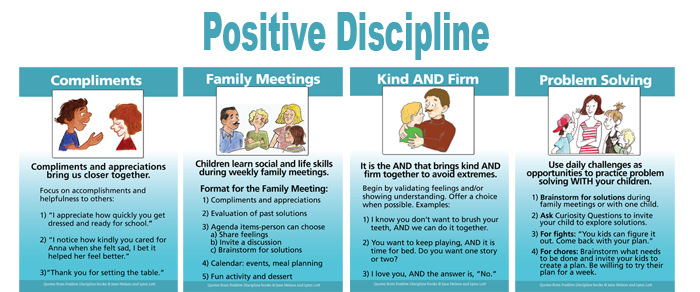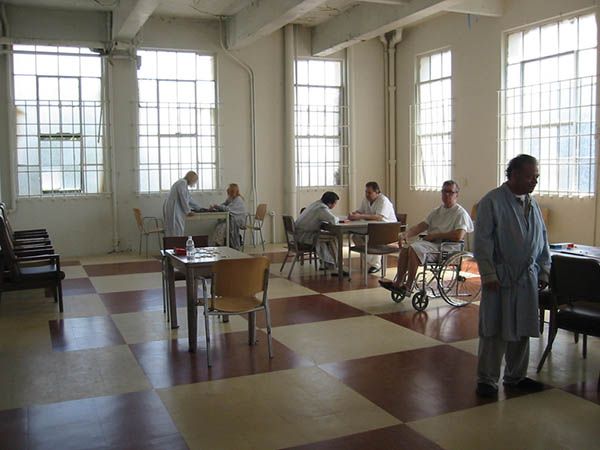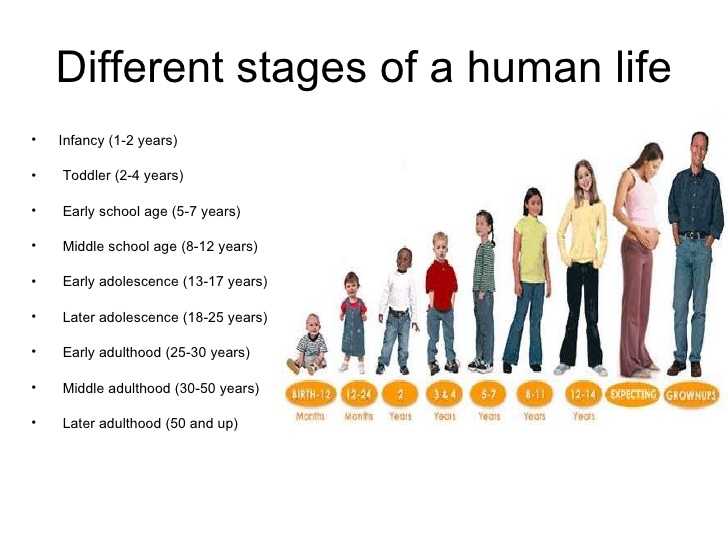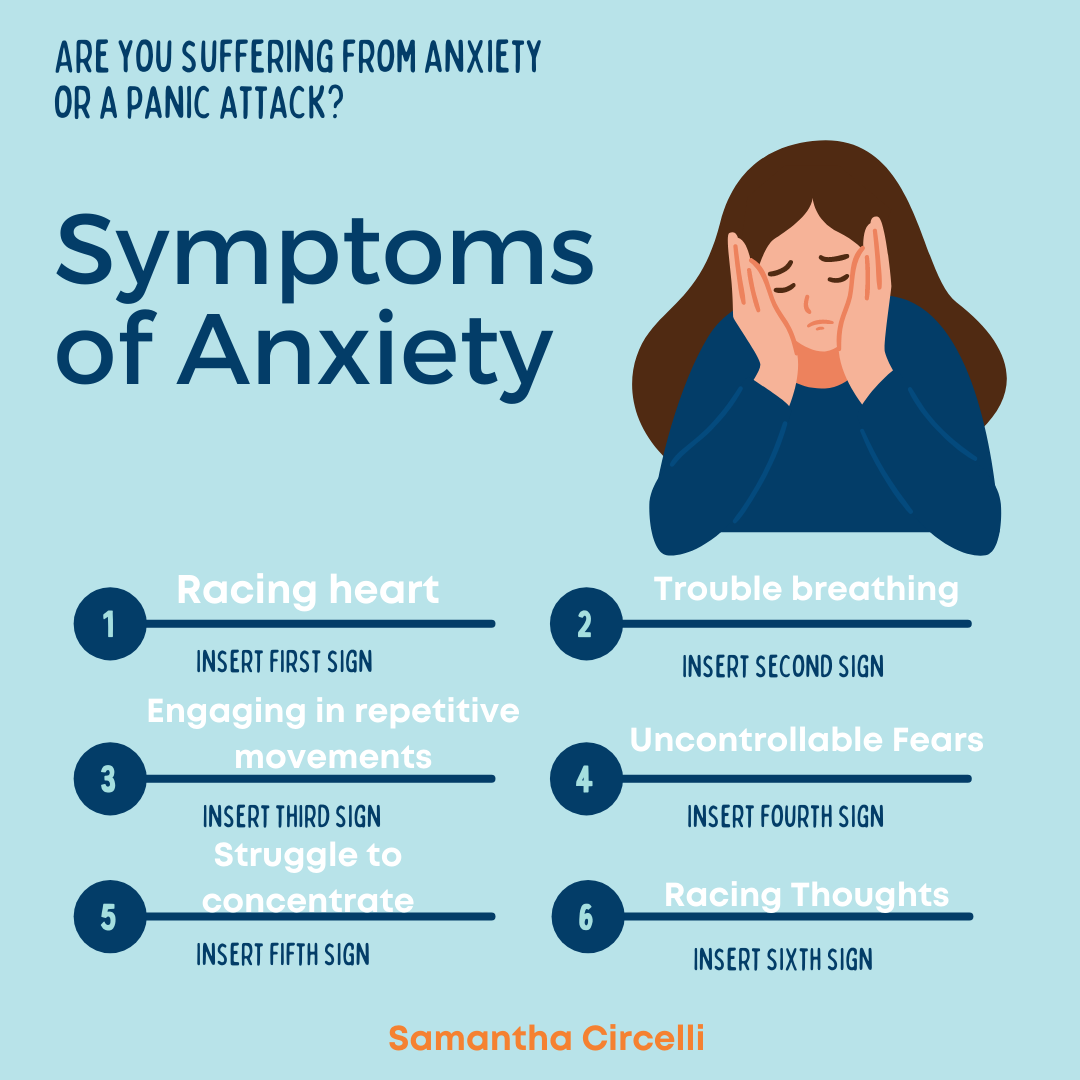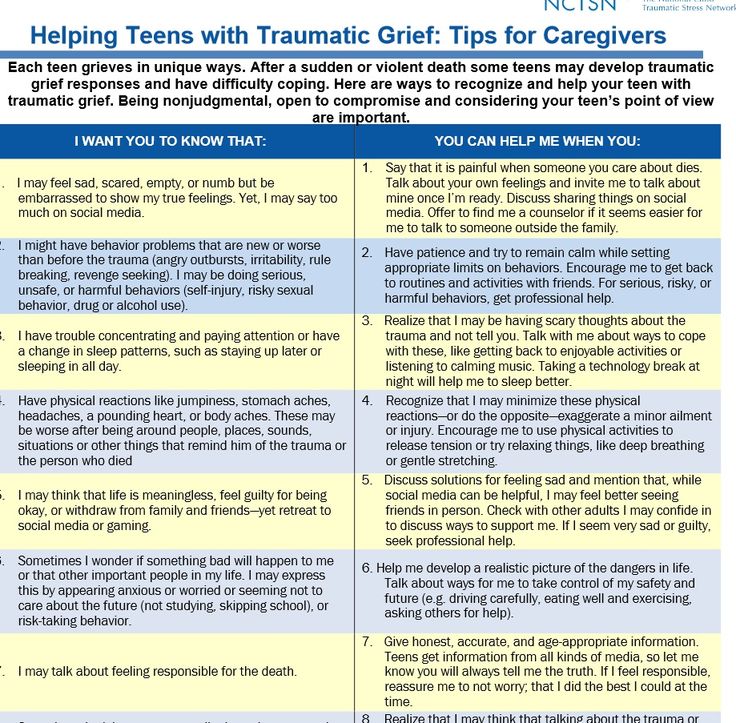Cope with grief and loss
Coping with Grief and Loss
grief & loss
Whatever type of loss you’ve suffered, there’s no right or wrong way to grieve. But by understanding the stages and types of grief, you can find healthier ways to cope.
What is grief?
Grief is a natural response to loss. It’s the emotional suffering you feel when something or someone you love is taken away. Often, the pain of loss can feel overwhelming. You may experience all kinds of difficult and unexpected emotions, from shock or anger to disbelief, guilt, and profound sadness. The pain of grief can also disrupt your physical health, making it difficult to sleep, eat, or even think straight. These are normal reactions to loss—and the more significant the loss, the more intense your grief will be.
Coping with the loss of someone or something you love is one of life’s biggest challenges. You may associate grieving with the death of a loved one—which is often the cause of the most intense type of grief—but any loss can cause grief, including:
Even subtle losses in life can trigger a sense of grief. For example, you might grieve after moving away from home, graduating from college, or changing jobs.
Whatever your loss, it's personal to you, so don't feel ashamed about how you feel, or believe that it's somehow only appropriate to grieve for certain things. If the person, animal, relationship, or situation was significant to you, it's normal to grieve the loss you're experiencing. Whatever the cause of your grief, though, there are healthy ways to cope with the pain that, in time, can ease your sadness and help you come to terms with your loss, find new meaning, and eventually move on with your life.
The grief of losing a loved one
Whether it’s a close friend, spouse, partner, parent, child, or other relative, few things are as painful as losing someone you love. After such a significant loss, life may never seem quite the same again. But in time, you can ease your sorrow, start to look to the future, and eventually come to terms with your loss.
Read: Bereavement: Grieving the Loss of a Loved One.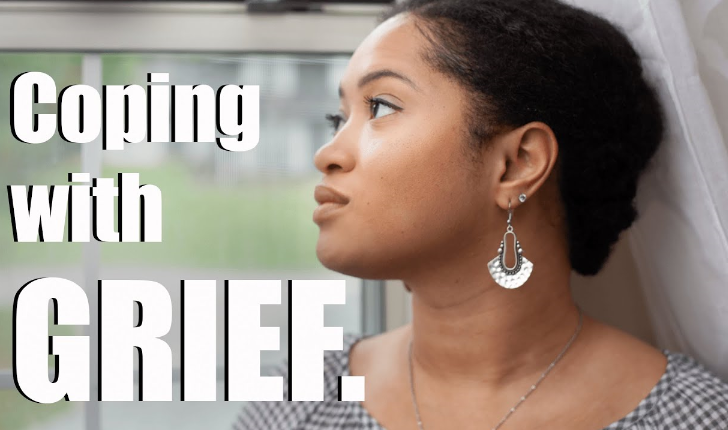
The grieving process
Grieving is a highly individual experience; there's no right or wrong way to grieve. How you grieve depends on many factors, including your personality and coping style, your life experience, your faith, and how significant the loss was to you.
Inevitably, the grieving process takes time. Healing happens gradually; it can't be forced or hurried—and there is no “normal” timetable for grieving. Some people start to feel better in weeks or months. For others, the grieving process is measured in years. Whatever your grief experience, it's important to be patient with yourself and allow the process to naturally unfold.
| Myths and facts about grief and grieving |
| Myth: The pain will go away faster if you ignore it
Fact: Trying to ignore your pain or keep it from surfacing will only make it worse in the long run. For real healing, it is necessary to face your grief and actively deal with it. |
| Myth: It's important to “be strong” in the face of loss.
Fact: Feeling sad, frightened, or lonely is a normal reaction to loss. Crying doesn't mean you are weak. You don't need to “protect” your family or friends by putting on a brave front. Showing your true feelings can help them and you. |
| Myth: If you don't cry, it means you aren't sorry about the loss.
Fact: Crying is a normal response to sadness, but it's not the only one. Those who don't cry may feel the pain just as deeply as others. They may simply have other ways of showing it. |
| Myth: Grieving should last about a year.
Fact: There is no specific time frame for grieving. How long it takes differs from person to person. |
| Myth: Moving on with your life means forgetting about your loss.
Fact: Moving on means you've accepted your loss—but that's not the same as forgetting. |
How to deal with the grieving process
While grieving a loss is an inevitable part of life, there are ways to help cope with the pain, come to terms with your grief, and eventually, find a way to pick up the pieces and move on with your life.
- Acknowledge your pain.
- Accept that grief can trigger many different and unexpected emotions.
- Understand that your grieving process will be unique to you.
- Seek out face-to-face support from people who care about you.
- Support yourself emotionally by taking care of yourself physically.
- Recognize the difference between grief and depression.
With over 25,000 licensed counselors, BetterHelp has a therapist that fits your needs. It's easy, affordable, and convenient.
GET 20% OFF
Online-Therapy.com is a complete toolbox of support, when you need it, on your schedule. It only takes a few minutes to sign up.
GET 20% OFF
Teen Counseling is an online therapy service for teens and young adults. Connect with your counselor by video, phone, or chat.
GET 20% OFF
The stages of grief
In 1969, psychiatrist Elisabeth Kübler-Ross introduced what became known as the “five stages of grief.” These stages of grief were based on her studies of the feelings of patients facing terminal illness, but many people have generalized them to other types of negative life changes and losses, such as the death of a loved one or a break-up.
The five stages of grief
Denial: “This can't be happening to me.”
Anger: “Why is this happening? Who is to blame?”
Bargaining: “Make this not happen, and in return I will ____.”
Depression: “I'm too sad to do anything. ”
”
Acceptance: “I'm at peace with what happened.”
If you are experiencing any of these emotions following a loss, it may help to know that your reaction is natural and that you'll heal in time. However, not everyone who grieves goes through all of these stages—and that's okay. Contrary to popular belief, you do not have to go through each stage in order to heal. In fact, some people resolve their grief without going through any of these stages. And if you do go through these stages of grief, you probably won't experience them in a neat, sequential order, so don't worry about what you “should” be feeling or which stage you're supposed to be in.
Kübler-Ross herself never intended for these stages to be a rigid framework that applies to everyone who mourns. In her last book before her death in 2004, she said of the five stages of grief: “They were never meant to help tuck messy emotions into neat packages. They are responses to loss that many people have, but there is not a typical response to loss, as there is no typical loss. Our grieving is as individual as our lives.”
Our grieving is as individual as our lives.”
Grief can be a roller coaster
Instead of a series of stages, we might also think of the grieving process as a roller coaster, full of ups and downs, highs and lows. Like many roller coasters, the ride tends to be rougher in the beginning, the lows may be deeper and longer.
The difficult periods should become less intense and shorter as time goes by, but it takes time to work through a loss. Even years after a loss, especially at special events such as a family wedding or the birth of a child, we may still experience a strong sense of grief.
Source: Hospice Foundation of America
Symptoms of grief
While loss affects people in different ways, many of us experience the following symptoms when we're grieving. Just remember that almost anything that you experience in the early stages of grief is normal—including feeling like you're going crazy, feeling like you're in a bad dream, or questioning your religious or spiritual beliefs.
Emotional symptoms of grief
Shock and disbelief. Right after a loss, it can be hard to accept what happened. You may feel numb, have trouble believing that the loss really happened, or even deny the truth. If a pet or someone you love has died, for example, you may keep expecting them to show up, even though you know they're gone.
Sadness. Profound sadness is probably the most universally experienced symptom of grief. You may have feelings of emptiness, despair, yearning, or deep loneliness. You may also cry a lot or feel emotionally unstable.
Guilt. You may regret or feel guilty about things you did or didn't say or do. You may also feel guilty about certain feelings (feeling relieved when a person died after a long, difficult illness, for example). You may even feel guilty for not doing more to prevent your loss, even if it was completely out of your hands.
Fear. A significant loss can trigger a host of worries and fears.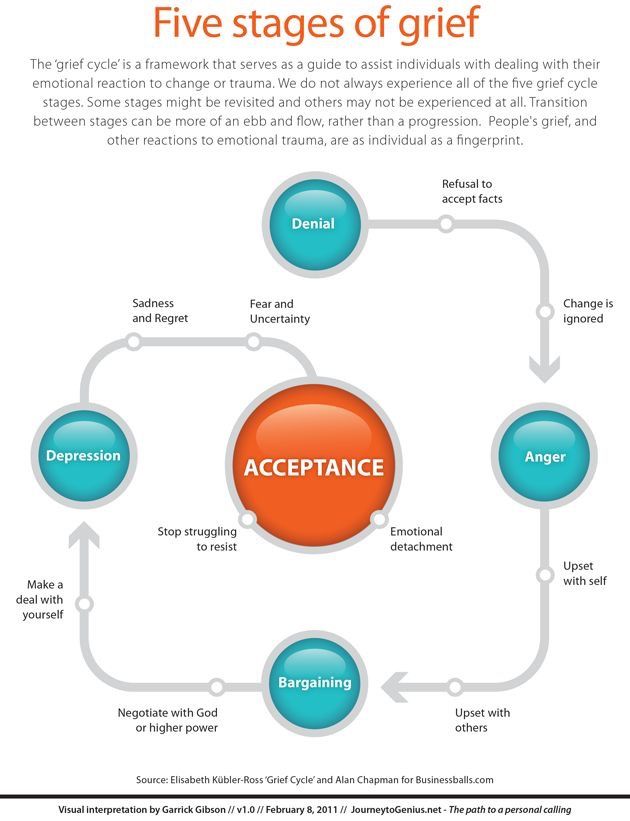 If you’ve lost your partner, your job, or your home, for example, you may feel anxious, helpless, or insecure about the future. You may even have panic attacks. The death of a loved one can trigger fears about your own mortality, of facing life without that person, or the responsibilities you now face alone.
If you’ve lost your partner, your job, or your home, for example, you may feel anxious, helpless, or insecure about the future. You may even have panic attacks. The death of a loved one can trigger fears about your own mortality, of facing life without that person, or the responsibilities you now face alone.
[Read: Dealing with Uncertainty]
Anger. Even if the loss was nobody's fault, you may feel angry and resentful. If you lost a loved one, you may be angry with yourself, God, the doctors, or even the person who died for abandoning you. You may feel the need to blame someone for the injustice that was done to you.
Physical symptoms of grief
We often think of grief as a strictly emotional process, but grief often involves physical problems, including:
- Fatigue
- Nausea
- Lowered immunity
- Weight loss or weight gain
- Aches and pains
- Insomnia
Types of grief
Since the experience of grieving following the loss of someone or something important to you tends to be unique to you, it’s difficult to label any type of grief as either “normal” or “abnormal”.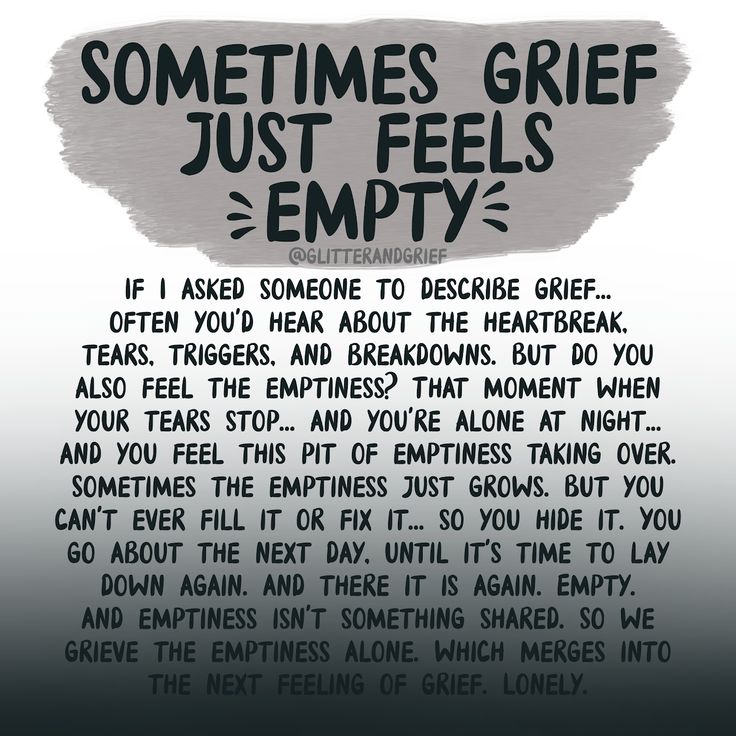 However, there are types of grief that fall outside the expected symptoms and reactions described above. These include:
However, there are types of grief that fall outside the expected symptoms and reactions described above. These include:
Anticipatory grief
As the name suggests, anticipatory grief develops before a significant loss occurs rather than after. If a loved one is terminally ill, for example, you have an aging pet, or you know that your retirement or job loss is imminent you may start grieving your loss before it has fully unfolded.
[Read: When a Loved One is Terminally Ill]
Like conventional grief, anticipatory grief can involve a mix of confusing emotions, particularly anger. Some people even equate it to giving up hope and refuse to allow themselves to grieve before their loss has occurred. However, anticipatory grief can also give you chance to prepare for your loss, resolve any unfinished business, or say your goodbyes, for example.
Disenfranchised grief
Disenfranchised grief can occur when your loss is devalued, stigmatized, or cannot be openly mourned.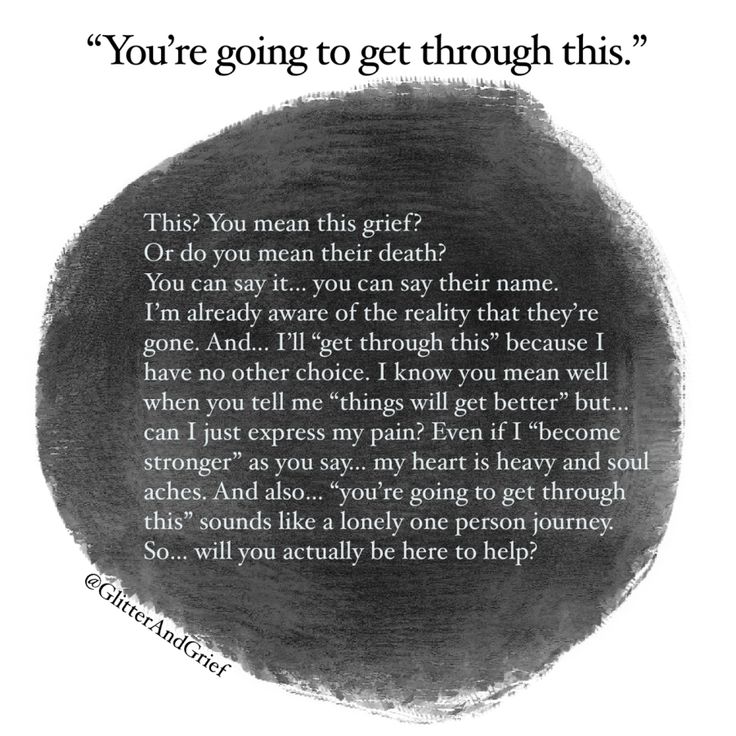 Some people may minimize the loss of a job, a pet, or a friendship, for example, as something that’s not worth grieving over. You may feel stigmatized if you suffered a miscarriage or lost a loved one to suicide.
Some people may minimize the loss of a job, a pet, or a friendship, for example, as something that’s not worth grieving over. You may feel stigmatized if you suffered a miscarriage or lost a loved one to suicide.
Disenfranchised grief can also occur when your relationship to a deceased is not recognized. Some people may consider it inappropriate to grieve for a work colleague, classmate, or neighbor, for example. As a close friend or same-sex partner you may be denied the same sympathy and understanding as a blood relative. This can make it even more difficult to come to terms with your loss and navigate the grieving process.
Complicated grief
The pain at a significant loss may never completely disappear, but it should ease up over time. When it doesn’t—and it keeps you from resuming your daily life and relationships—it may be a sign of complicated grief.
Complicated grief usually arises from the death of a loved one, where the loss has left you stuck in a state of bereavement.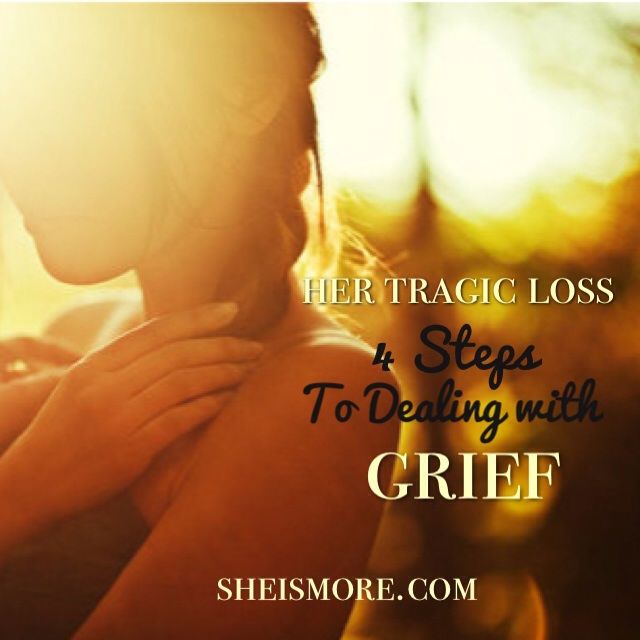 You may be unable to accept your loved one has gone, search for them in familiar places, experience intense longing, or even feel that life isn’t worth living.
You may be unable to accept your loved one has gone, search for them in familiar places, experience intense longing, or even feel that life isn’t worth living.
If you’re experiencing complicated grief and the pain from your loss remains unresolved, it’s important to reach out for support and take the steps that will enable you to heal.
Seeking support for grief and loss
The pain of grief can often cause you to want to withdraw from others and retreat into your shell. But having the face-to-face support of other people is vital to healing from loss. Even if you're not comfortable talking about your feelings under normal circumstances, it's important to express them when you're grieving.
While sharing your loss can make the burden of grief easier to carry, that doesn't mean that every time you interact with friends and family, you need to talk about your loss. Comfort can also come from just being around others who care about you. The key is not to isolate yourself.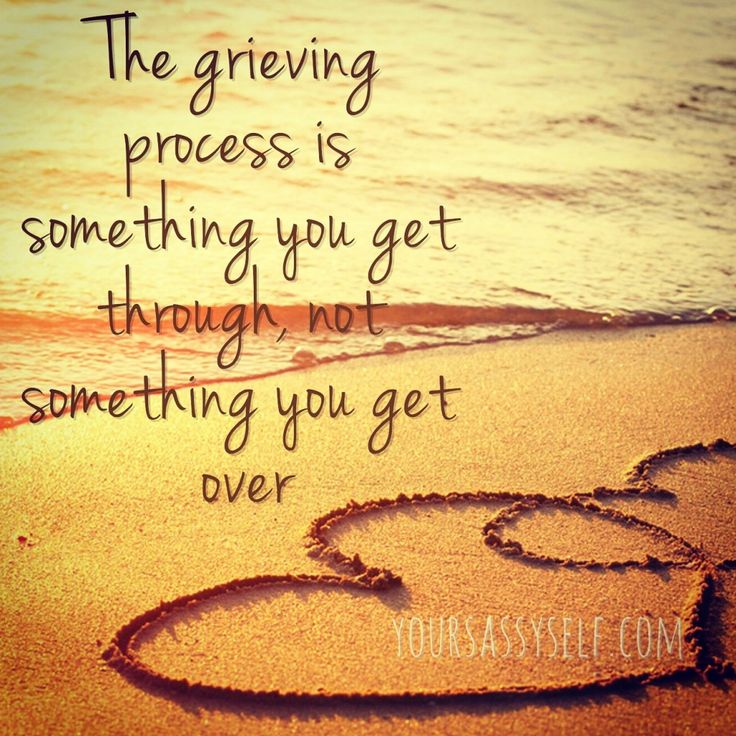
Turn to friends and family members. Now is the time to lean on the people who care about you, even if you take pride in being strong and self-sufficient. Rather than avoiding them, draw friends and loved ones close, spend time together face to face, and accept the assistance that's offered. Often, people want to help but don't know how, so tell them what you need—whether it's a shoulder to cry on, a listening ear, or just someone to hang out with. If you don't feel you have anyone you can regularly connect with in person, it's never too late to build new friendships.
Accept that many people feel awkward when trying to comfort someone who's grieving. Grief can be a confusing, sometimes frightening emotion for many people, especially if they haven't experienced a similar loss themselves. They may feel unsure about how to comfort you and end up saying or doing the wrong things. But don't use that as an excuse to retreat into your shell and avoid social contact. If a friend or loved one reaches out to you, it's because they care.
If a friend or loved one reaches out to you, it's because they care.
Draw comfort from your faith. If you follow a religious tradition, embrace the comfort its mourning rituals can provide. Spiritual activities that are meaningful to you—such as praying, meditating, or going to church—can offer solace. If you're questioning your faith in the wake of the loss, talk to a clergy member or others in your religious community.
Join a support group. Grief can feel very lonely, even when you have loved ones around. Sharing your sorrow with others who have experienced similar losses can help. To find a bereavement support group in your area, contact local hospitals, hospices, funeral homes, and counseling centers, or see the links below.
[Read: Support Groups: Types, Benefits, and What to Expect]
Talk to a therapist or grief counselor. If your grief feels like too much to bear, find a mental health professional with experience in grief counseling. An experienced therapist can help you work through intense emotions and overcome obstacles to your grieving.
An experienced therapist can help you work through intense emotions and overcome obstacles to your grieving.
Beware how you use social media
Social media can be useful in letting others know about your loss and reaching out for support. However, it can also attract Internet trolls who post inappropriate, insensitive, or even abusive messages. To spare yourself additional pain and heartache at this time, you may want to limit your social media use to closed groups rather than public postings that can be commented on by anyone.
Taking care of yourself as you grieve
When you're grieving, it's more important than ever to take care of yourself. The stress of a major loss can quickly deplete your energy and emotional reserves. Looking after your physical and emotional needs will help you get through this difficult time.
Face your feelings. You can try to suppress your grief, but you can't avoid it forever. In order to heal, you have to acknowledge the pain.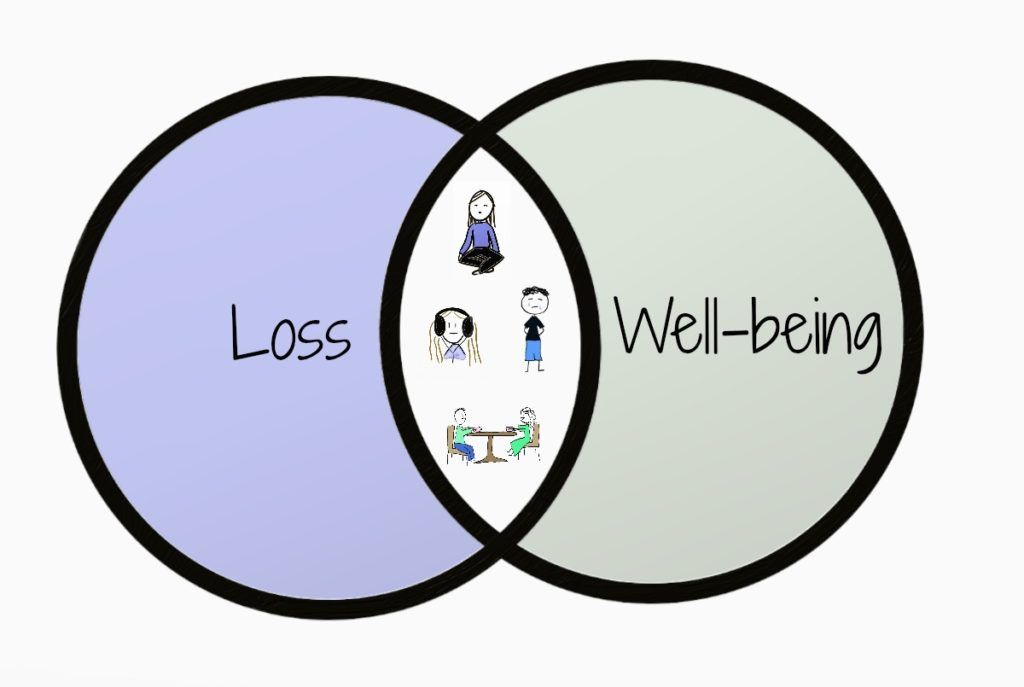 Trying to avoid feelings of sadness and loss only prolongs the grieving process. Unresolved grief can also lead to complications such as depression, anxiety, substance abuse, and health problems.
Trying to avoid feelings of sadness and loss only prolongs the grieving process. Unresolved grief can also lead to complications such as depression, anxiety, substance abuse, and health problems.
Express your feelings in a tangible or creative way. Even if you’re not able to talk about your loss with others, it can help to write down your thoughts and feelings in a journal, for example. Or you could release your emotions by making a scrapbook or volunteering for a cause related to your loss.
Try to maintain your hobbies and interests. There's comfort in routine and getting back to the activities that bring you joy and connect you closer to others can help you come to terms with your loss and aid the grieving process.
Don't let anyone tell you how to feel, and don't tell yourself how to feel either. Your grief is your own, and no one else can tell you when it's time to “move on” or “get over it.” Let yourself feel whatever you feel without embarrassment or judgment. It's okay to be angry, to yell at the heavens, to cry or not to cry. It's also okay to laugh, to find moments of joy, and to let go when you're ready.
It's okay to be angry, to yell at the heavens, to cry or not to cry. It's also okay to laugh, to find moments of joy, and to let go when you're ready.
Look after your physical health. The mind and body are connected. When you feel healthy physically, you'll be better able to cope emotionally. Combat stress and fatigue by getting enough sleep, eating right, and exercising. Don't use alcohol or drugs to numb the pain of grief or lift your mood artificially.
[Read: Self-Medicating Depression, Anxiety, and Stress]
Plan ahead for grief “triggers.” Anniversaries, holidays, and important milestones can reawaken painful memories and feelings. Be prepared for an emotional wallop, and know that it’s completely normal. You can plan ahead by making sure that you’re not alone, for example, or by marking your loss in a creative way.
For more help facing up to and managing distressing emotions like grief…
Use HelpGuide's free Emotional Intelligence Toolkit.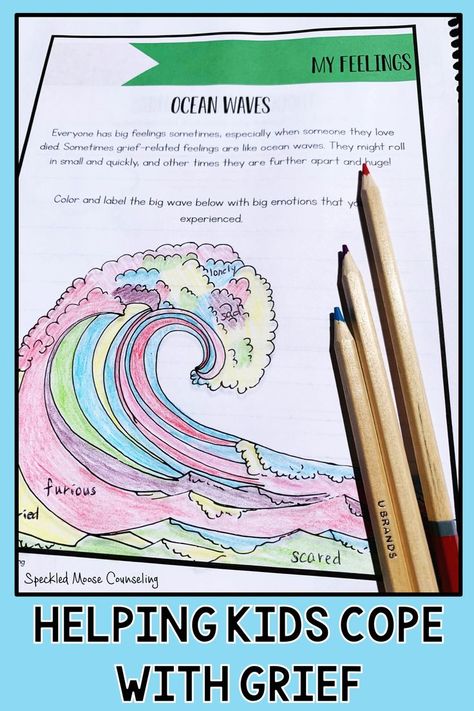
Authors: Melinda Smith, M.A., Lawrence Robinson, and Jeanne Segal, Ph.D.
- References
Depressive Disorders. (2013). In Diagnostic and Statistical Manual of Mental Disorders. American Psychiatric Association. https://doi.org/10.1176/appi.books.9780890425787.x04_Depressive_Disorders
Zisook, S., & Shear, K. (2009). Grief and bereavement: What psychiatrists need to know. World Psychiatry, 8(2), 67–74. https://doi.org/10.1002/j.2051-5545.2009.tb00217.x
Stroebe, M., Schut, H., & Stroebe, W. (2007). Health outcomes of bereavement. The Lancet, 370(9603), 1960–1973. https://doi.org/10.1016/S0140-6736(07)61816-9
Simon, N. M., Wall, M. M., Keshaviah, A., Dryman, M. T., LeBlanc, N.
 J., & Shear, M. K. (2011). Informing the symptom profile of complicated grief. Depression and Anxiety, 28(2), 118–126. https://doi.org/10.1002/da.20775
J., & Shear, M. K. (2011). Informing the symptom profile of complicated grief. Depression and Anxiety, 28(2), 118–126. https://doi.org/10.1002/da.20775Corr, C. A. (1999). Enhancing the Concept of Disenfranchised Grief. OMEGA – Journal of Death and Dying, 38(1), 1–20. https://doi.org/10.2190/LD26-42A6-1EAV-3MDN
Johansson, A. K., & Grimby, A. (2012). Anticipatory grief among close relatives of patients in hospice and palliative wards. The American Journal of Hospice & Palliative Care, 29(2), 134–138. https://doi.org/10.1177/1049909111409021
Grief and Loss – A guide to preparing for and mourning the death of a loved one. (Harvard Medical School Special Health Report)
Death and Grief – Article for teens on how to cope with grief and loss. (TeensHealth)
Grief: Coping with Reminders after a Loss – Tips for coping with the grief that can resurface even years after you’ve lost a loved one. (Mayo Clinic)
Complicated Grief – Difference between the normal grief reaction and complicated grief. (Mayo Clinic)
(Mayo Clinic)
The Importance Of Mourning Losses (Even When They Seem Small) – Understanding disenfranchised grief. (NPR)
Disenfranchised Grief – Understanding and coping with disenfranchised grief. (Family Health Psychiatric & Counseling Center)
5 Steps for Dealing with Anticipatory Grief – Helping yourself and your loved one. (Visiting Nurse Service of New York)
4 Types of Grief Nobody Told You About – Examines less common reasons for grief such as loss of identity, safety, and dreams. (Psychology Today)
Grief and loss resources
Helplines:
In the U.S.: Crisis Call Center at 775-784-8090
UK: Cruse Bereavement Care at 0808 808 1677
Australia: GriefLine at (03) 9935 7400
Other support:
Find a GriefShare group meeting near you – Worldwide directory of support groups for people grieving the death of a family member or friend. (GriefShare)
Find Support – Directory of programs and support groups in the U.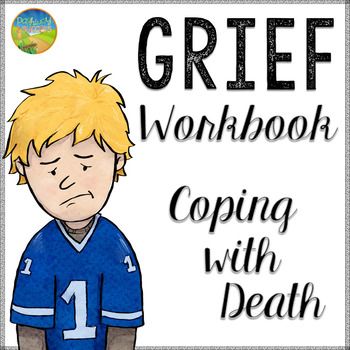 S. for children experiencing grief and loss. (National Alliance for Grieving Children)
S. for children experiencing grief and loss. (National Alliance for Grieving Children)
Chapter Locator for finding help for grieving the loss of a child in the U.S. and International Support for finding help in other countries. (The Compassionate Friends)
If you're feeling suicidal…
Seek help immediately. Please read Suicide Help, talk to someone you trust, or call a suicide helpline:
- In the U.S., call 1-800-273-8255.
- In the UK, call 08457 90 90 90.
- In Australia, call 13 11 14.
- Or visit IASP to find a helpline in your country.
Last updated: December 5, 2022
Bereavement: Grieving the Loss of a Loved One
grief & loss
Few things compare to the pain of losing someone you love. While there’s no way to avoid intense feelings of grief, there are healthier ways to come to terms with your loss.
What is bereavement?
Bereavement is the grief and mourning experience following the death of someone important to you. While it’s an inevitable part of life—something that virtually all of us go through at some point—losing someone you love can be one of the most painful experiences you’ll ever have to endure.
While it’s an inevitable part of life—something that virtually all of us go through at some point—losing someone you love can be one of the most painful experiences you’ll ever have to endure.
Whether it’s a close friend, spouse, partner, parent, child, or other relative, the death of a loved one can feel overwhelming. You may experience waves of intense and very difficult emotions, ranging from profound sadness, emptiness, and despair to shock, numbness, guilt, or regret. You might rage at the circumstances of your loved one’s death—your anger focused on yourself, doctors, other loved ones, or God. You may even find it difficult to accept the person is really gone, or struggle to see how you can ever recover and move on from your loss.
Bereavement isn’t limited to emotional responses, either. Grief at the death of a loved one can also trigger physical reactions, including weight and appetite changes, difficulty sleeping, aches and pains, and an impaired immune system leading to illness and other health problems.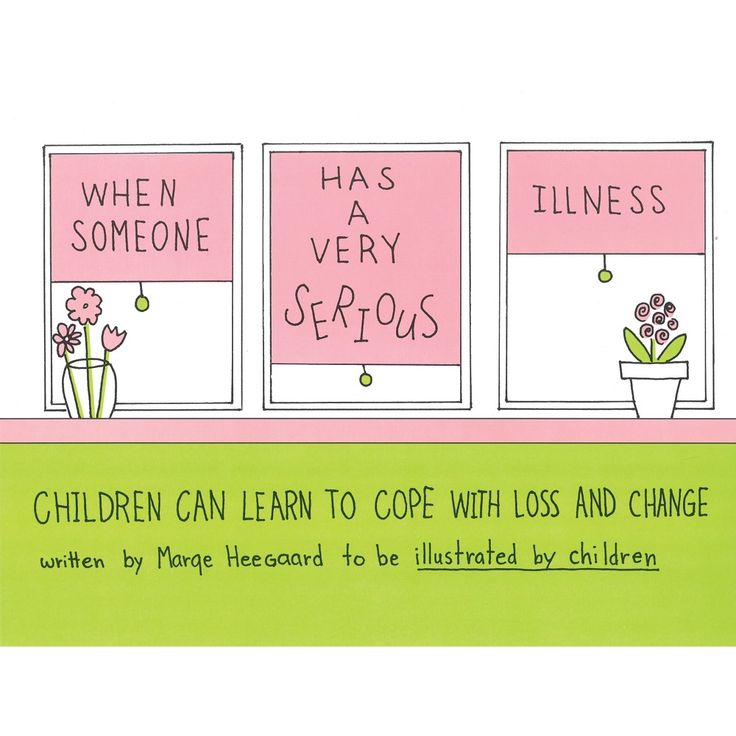
The level of support you have around you, your personality, and your own levels of health and well-being can all play a role in how grief impacts you following bereavement. But no matter how much pain you’re in right now, it’s important to know that there are healthy ways to cope with the anguish and come to terms with your grief. While life may never be quite the same again, in time you can ease your sorrow, start to look to the future with hope and optimism, and eventually move forward with your life.
Grieving the loss of a pet
Bereavement isn’t restricted to the death of a person. For many of us, our pets are also close companions or family members. So, when a pet dies, you can experience similar feelings of grief, pain, and loss. As with grieving for human loved ones, healing from the loss of an animal companion takes time, but there are ways to cope with your grief.
Read: Coping with Losing a Pet.
Understanding the grief of losing a loved one
The intensity of your feelings often depends on the circumstances of your loved one’s death, how much time you spent anticipating their loss, your relationship to them, and your previous experiences of bereavement.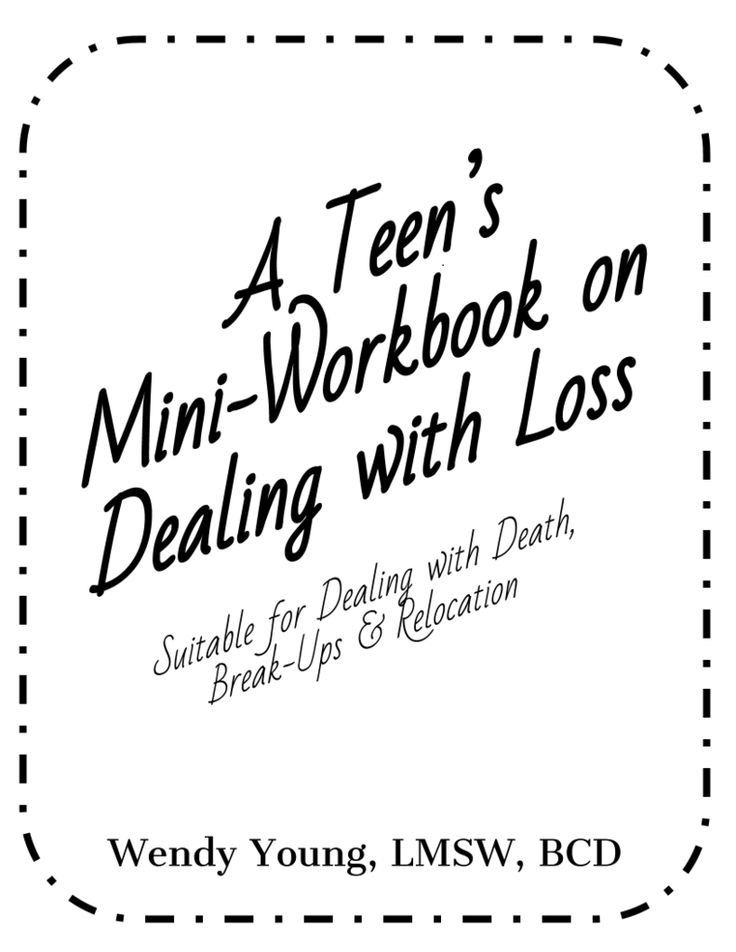 Of course, just as no two relationships are the same, no two losses are ever the same, either.
Of course, just as no two relationships are the same, no two losses are ever the same, either.
In short, the more significant the person was in your life and the more feelings you had for them—regardless of their relationship to you—the greater the impact their loss is likely to have.
Losing a spouse or partner
In addition to the emotional impact of grief, when you lose a spouse or romantic partner, you often have to deal with the stress of practical considerations such as funeral arrangements and financial issues, too. You may also have to explain your spouse’s death to your children and find a way to comfort them while simultaneously dealing with your own heartache.
Losing a romantic partner also means grieving the loss of your daily lifestyle, the loss of a shared history, and the loss of a future planned together. You may feel alone, despairing, and worried about the future. You could even feel guilty about somehow having failed to protect your partner, or angry at your loved one for leaving you.
Losing a parent
For younger children, losing a mother or father can be one of the most traumatic things that can happen in childhood. The death of the person you relied on, the person who loved you unconditionally, can shake your foundations and leave a huge, frightening void in your world. It’s also common for young children to blame themselves for a parent’s death, prolonging the pain of grief.
Even as an adult child, losing a parent can be extremely distressing. It’s easy to feel lost and for all those old childhood insecurities to suddenly return. You may gain some solace if your parent had a long and fulfilling life, but their death can also cause you to consider your own mortality. If you’ve lost both parents, you’re suddenly part of the older generation, a generation without parents, and you’re left to grieve your youth as well. And if your relationship with your parent wasn’t an easy one, their death can leave you wrestling with a host of conflicting emotions.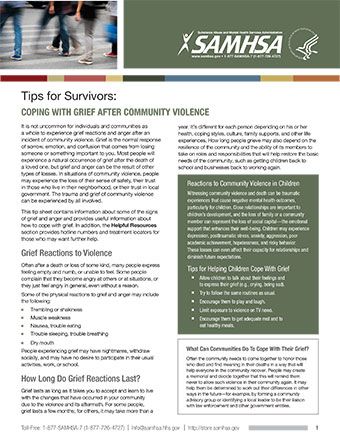
Losing a child
The loss of a child is always devastating. You’re not just losing the person they were, you’re also losing the years of promise, hopes, and dreams that lay ahead. The grief can be more intense, the bereavement process harder to navigate, and the trauma more acute.
As a parent, you feel responsible for your child’s health and safety, so the sense of guilt can often be overwhelming. Whether you lost your child in a miscarriage, as an infant, or after they’d grown up and left home, losing a child carries an additional weight of injustice. It feels unnatural for a parent to outlive their child, making it that much harder to find meaning and come to terms with their death.
Losing a child can also put a huge strain your relationship with your spouse or partner and make parenting any surviving children emotionally challenging.
Losing a friend
Close friendships bring joy, understanding, and companionship into our lives. In fact, they’re vital to our health and well-being, so it’s no wonder we can feel their loss so gravely.
When a close friend dies, though, it’s easy to feel marginalized, the closeness of your relationship not given the same significance as a family member or romantic partner. This can lead to what’s called disenfranchised grief, where your loss is devalued or you feel judged or stigmatized for feeling the loss so deeply.
Losing someone to suicide
The shock following a suicide can seem overwhelming. As well as mourning the loss of your loved one, you may also be struggling to come to terms with the nature of their death and the stigma that suicide can still carry.
While you may always be left with some unanswered questions about your loved one’s suicide, there are ways to resolve your grief and even gain some level of acceptance. Read: Suicide Grief.
Grieving your loss
Whatever your relationship to the person who died, it’s important to remember that we all grieve in different ways. There’s no single way to react. When you lose someone important in your life, it’s okay to feel how you feel.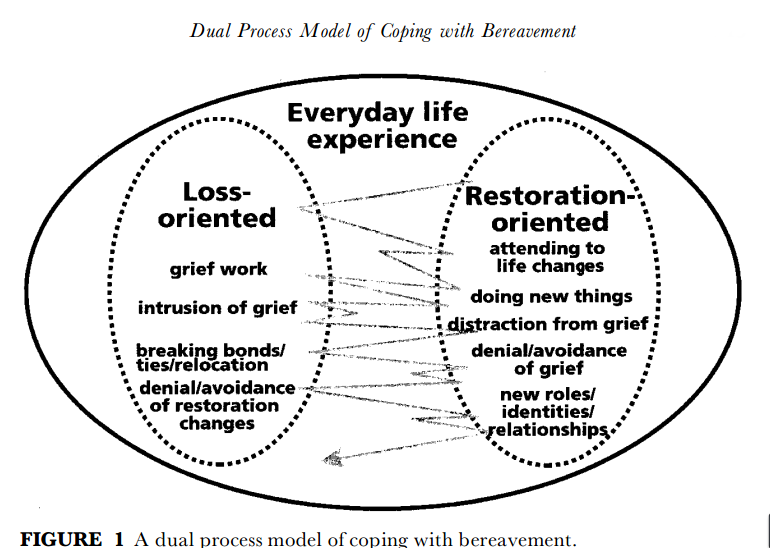 Some people express their pain by crying, others never shed a tear—but that doesn’t mean they feel the loss any less.
Some people express their pain by crying, others never shed a tear—but that doesn’t mean they feel the loss any less.
Don’t judge yourself, think that you should be behaving in a different way, or try to impose a timetable on your grief. Grieving someone’s death takes time. For some people, that time is measured in weeks or months, for others it’s in years.
Allow yourself to feel. The bereavement and mourning process can trigger many intense and unexpected emotions. But the pain of your grief won’t go away faster if you ignore it. In fact, trying to do so may only make things worse in the long run. To eventually find a way to come to terms with your loss, you’ll need to actively face the pain. As bereavement counselor and writer Earl Grollman put it, “The only cure for grief is to grieve.”
Grief doesn’t always move through stages. You may have read about the different “stages of grief”—usually denial, anger, bargaining, depression, and acceptance.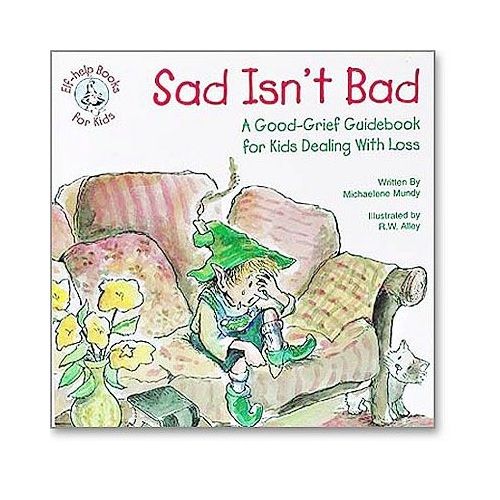 However, many people find that grief following the death of a loved one isn’t nearly that predictable. For some, grief can come in waves or feel more like an emotional rollercoaster. For others, it can move through some stages but not others. Don’t think that you should be feeling a certain way at a certain time.
However, many people find that grief following the death of a loved one isn’t nearly that predictable. For some, grief can come in waves or feel more like an emotional rollercoaster. For others, it can move through some stages but not others. Don’t think that you should be feeling a certain way at a certain time.
[Read: Coping with Grief and Loss]
Prepare for painful reminders. Some days the pain of your bereavement may seem more manageable than others. Then a reminder such as a photo, a piece of music, or a simple memory can trigger a wave of painful emotions again. While you can’t plan ahead for such reminders, you can be prepared for an upcoming holiday, anniversary, or birthday that may reignite your grief. Talk to other friends and family ahead of time and agree on the best ways to mark such occasions.
Moving on doesn’t mean forgetting your loved one. Finding a way to continue forward with your life doesn’t mean your pain will end or your loved one will be forgotten.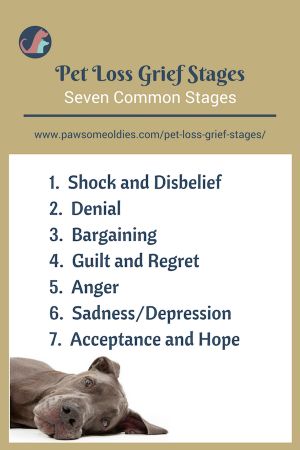 Most of us carry our losses with us throughout life; they become part of who we are. The pain should gradually become easier to bear, but the memories and the love you had for the person will always remain.
Most of us carry our losses with us throughout life; they become part of who we are. The pain should gradually become easier to bear, but the memories and the love you had for the person will always remain.
With over 25,000 licensed counselors, BetterHelp has a therapist that fits your needs. It's easy, affordable, and convenient.
GET 20% OFF
Online-Therapy.com is a complete toolbox of support, when you need it, on your schedule. It only takes a few minutes to sign up.
GET 20% OFF
Teen Counseling is an online therapy service for teens and young adults. Connect with your counselor by video, phone, or chat.
GET 20% OFF
Seek support
When you lose someone you love, it’s normal to want to cut yourself off from others and retreat into your shell. But this is no time to be alone. Even when you don’t feel able to talk about your loss, simply being around other people who care about you can provide comfort and help ease the burden of bereavement.
Reaching out to those who care about you can also be an important first step on the road to healing. While some friends and relatives may be uncomfortable with your grief, plenty of others will be eager to lend support. Talking about your thoughts and feelings won’t make you a burden. Rather, it can help you make sense of your loved one’s death and find ways to honor their memory.
Lean on friends and family. Even those closest to you can struggle to know how to help during a time of bereavement, so don’t hesitate to tell others what you need—whether it’s helping with funeral arrangements or just being around to talk. If you don’t feel you have anyone you can lean on for support at this difficult time, look to widen your social network and build new friendships.
Focus on those who are “good listeners”. When you’re grieving the loss of a close friend or family member, the most important thing is to feel heard by those you confide in. But the raw emotion of your grief can make some people very uncomfortable.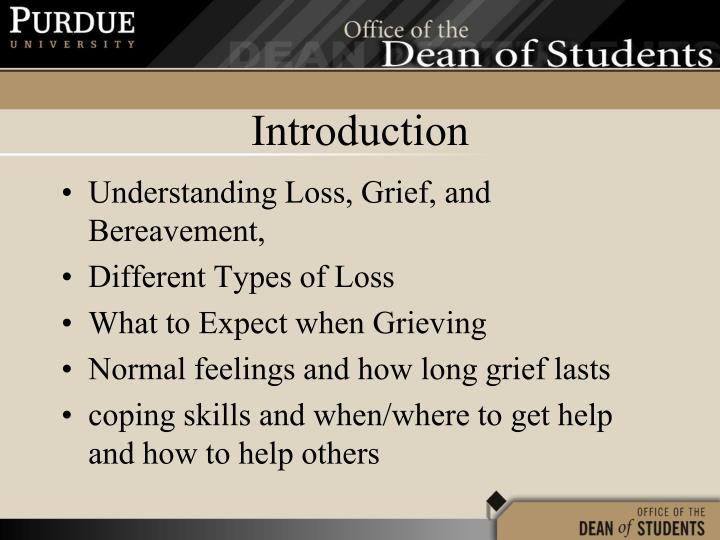 That discomfort can cause them to avoid you, say thoughtless or hurtful things, or lose patience when you talk about your loss. Don’t use their actions as a reason to isolate, though. Turn to those who are better able to listen and provide comfort.
That discomfort can cause them to avoid you, say thoughtless or hurtful things, or lose patience when you talk about your loss. Don’t use their actions as a reason to isolate, though. Turn to those who are better able to listen and provide comfort.
Join a bereavement support group. Even when you have support from those closest to you, family and friends may not always know the best ways to help. Sharing your grief with others who have experienced similar losses can help you feel less alone in your pain. By listening to others share their stories, you can also gain valuable coping tips. To find a support group in your area, contact nearby hospitals, funeral homes, or counseling centers, or call a bereavement hotline listed below.
Talk to a bereavement counselor. If you’re struggling to accept your loss or your grief feels overwhelming, try talking to a bereavement or grief therapist—in-person or via video conferencing online. Confiding in a professional can help you work through emotions that may be too difficult to share with family or friends, deal with any unresolved issues from your loved one’s death, and find healthier ways to adapt to life following your loss.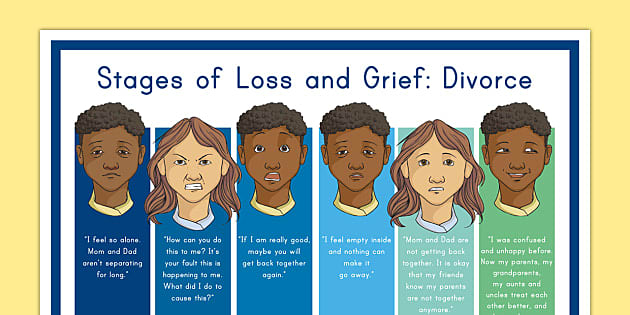
[Read: Online Therapy: Is it Right for You?]
Draw comfort from your religion. If you’re religious, the specific mourning rituals of your faith can provide comfort and draw you together with others to share your grief. Attending religious services, reading spiritual texts, praying, meditating, or talking to a clergy member can also offer great comfort and help you derive meaning from your loved one's death.
Using social media for grief support
Memorial pages on Facebook and other social media sites have become popular ways to inform a wide audience of a loved one’s passing and to find support. As well as allowing you to impart practical information, such as funeral plans, these pages allow friends and loved ones to post their own tributes or condolences. Reading such messages can often provide comfort for those grieving the loss.
Of course, posting sensitive content on social media has its risks. Memorial pages are often open to anyone. This may encourage people who hardly knew the deceased to post well-meaning but inappropriate comments or advice. Worse, memorial pages can also attract Internet trolls. There have been many well-publicized cases of strangers posting cruel or abusive messages on memorial pages.
Worse, memorial pages can also attract Internet trolls. There have been many well-publicized cases of strangers posting cruel or abusive messages on memorial pages.
[Read: Social Media and Mental Health]
To gain some protection on Facebook, for example, you can opt to create a closed group rather than a public page. This means people have to be approved by a group member before they can access the memorial. It’s also important to remember that while social media can be a useful tool for reaching out to others, it can’t replace the face-to-face support you need at this time.
Celebrate your loved one’s life
Rituals such as a funeral or memorial service can fulfill important functions, allowing you to acknowledge and reflect on the person’s passing, remember their life, and say goodbye. In the period after a funeral, however, your grief can often become even more intense. Often, other people may appear to have moved on, while you’re left struggling to make sense of your “new normal”.
Remembering your loved one doesn’t have to end with the funeral, though. Finding ways of celebrating the person you loved can help maintain their memory and provide comfort as you move through the grieving process.
Keep a journal or write a letter to your loved one. Saying the things you never got to say to your loved one in life can provide an important emotional release and help you make sense of what you’re feeling.
Create a memorial. Building a memorial to your loved one, creating a website or blog, or compiling a photo album or scrapbook to highlight the love you shared can help promote healing. Planting flowers or a tree in your loved one’s memory can be particularly rewarding, allowing you to watch something grow and flourish as you tend to it.
Build a legacy. Starting a campaign or fundraiser in your loved one’s name, volunteering for a cause that was important to them, or donating to a charity they supported, for example, can help you find meaning in their loss.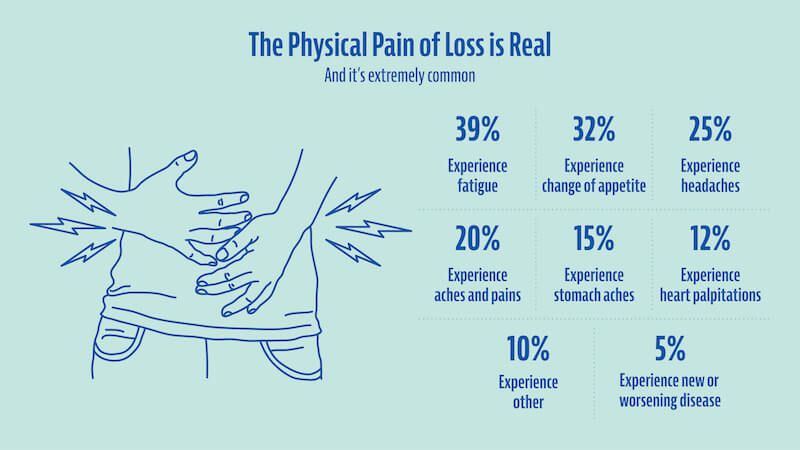 It can also add a sense of purpose as you move forward with your own life.
It can also add a sense of purpose as you move forward with your own life.
Continue to do things you used to do together. Perhaps you used to go to sports events with your loved one, listen to music, or take long walks together? There’s comfort in routine, so when it’s not too painful, continuing to do these things can be a way to mark your loved one’s life.
Remember your loved one in simple ways. Even simple acts such as lighting a candle, visiting a favorite place, or marking an important date can help the healing process.
Take care of yourself
When you’re grieving the death of a loved one, it’s easy to neglect your own health and welfare. But the stress, trauma, and intense emotions you’re dealing with at the moment can impact your immune system, affect your diet and sleep, and take a heavy toll on your overall mental and physical health.
Neglecting your well-being may even prolong the grieving process and make you more susceptible to depression or complicated grief.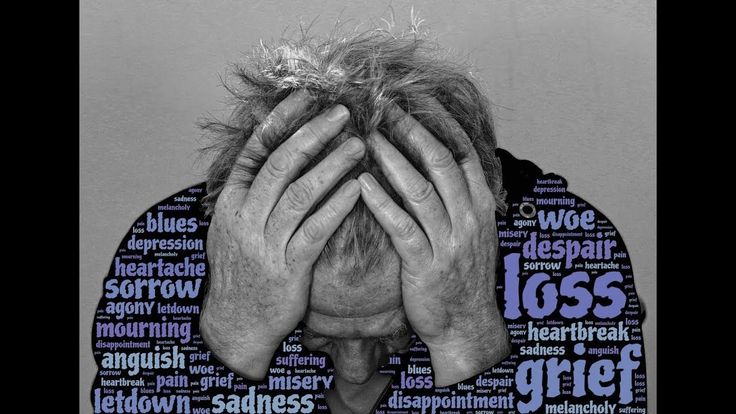 You’ll also find it harder to provide comfort to children or other vulnerable family members who are also grieving. However, there are simple steps you can take to nurture your health at this time.
You’ll also find it harder to provide comfort to children or other vulnerable family members who are also grieving. However, there are simple steps you can take to nurture your health at this time.
Manage stress. It’s probably the last thing you feel like doing at the moment, but exercising is a powerful antidote to stress—and can help you sleep better at night. Relaxation techniques such as deep breathing, meditation, and yoga are also effective ways to ease anguish and worry.
Spend time in nature. Immersing yourself in nature and spending time in green spaces can be a calming, soothing experience when you’re grieving. Try gardening, hiking, or walking in a park or woodland.
Pursue interests that enrich your life. Hobbies, sports, and other interests that add meaning and purpose to your life can bring a comforting routine back to your life following the upheaval of bereavement. They can also help connect you with others and nurture your spirit.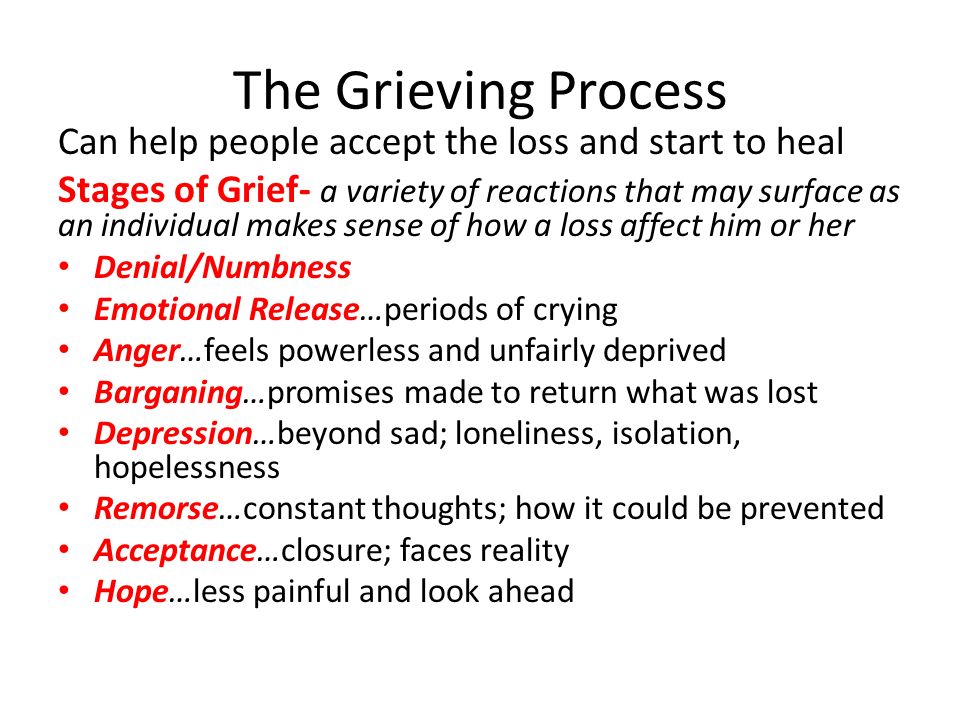
Eat and sleep well. Eating a healthy diet and getting enough rest at night can have a huge impact on your ability to cope with grief. If you’re struggling to sleep at this difficult time, there are supplements and sleep aids that may be able to help—just try not to rely on them for too long.
Avoid using alcohol or drugs to cope. While it’s tempting to use substances to help numb your grief and self-medicate your pain, in the long run excessive alcohol and drug use will only hamper your ability to grieve. Try using HelpGuide’s free Emotional Intelligence Toolkit as a healthier way to manage your emotions.
When the pain of bereavement doesn’t ease up
You may never truly get over the death of someone you love. But as time passes, it’s normal for difficult emotions such as sadness or anger to gradually ease as you begin to accept your loss and move forward with your life.
However, if you aren’t feeling better over time, or your pain is getting worse, it may be a sign that your grief has developed into a more serious problem, such as complicated grief or major depression.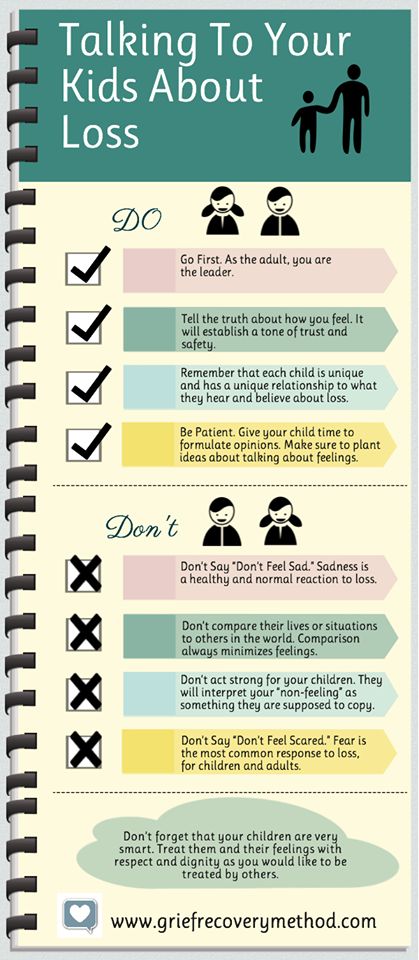
Grief vs. depression
Distinguishing between grief and depression isn’t always easy as they share many symptoms, but there are ways to tell the difference:
- Grief can be a roller coaster. It involves a wide variety of emotions and a mix of good and bad days. Even when you’re in the middle of the grieving process, you will still have moments of pleasure or happiness.
- With depression, on the other hand, the feelings of emptiness and despair are constant.
[Read: Depression Symptoms and Warning Signs]
Other symptoms that suggest depression, not just grief, include:
- Intense, pervasive sense of guilt.
- Thoughts of suicide or a preoccupation with dying.
- Feelings of hopelessness or worthlessness.
- Slow speech and body movements.
- Inability to function at home, work, or school.
- Seeing or hearing things that aren’t there.
What is complicated grief?
While the sadness of losing someone you love never goes away completely, it shouldn’t remain center stage.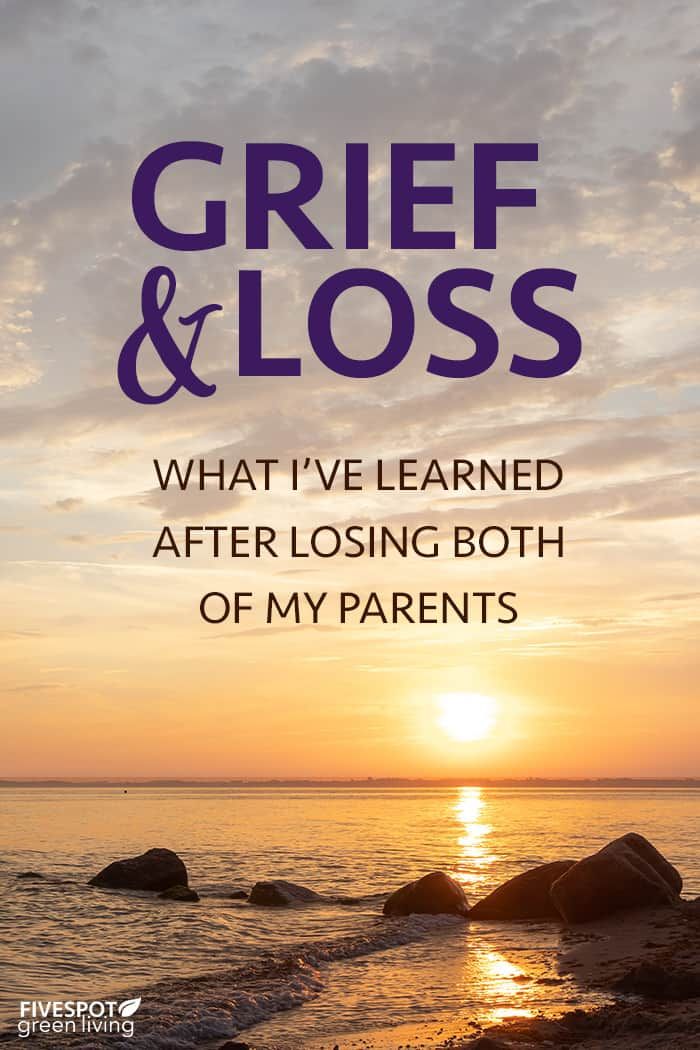 If the pain of the loss is so constant and severe that it keeps you from resuming your life, you may be suffering from a condition known as complicated grief or persistent complex bereavement disorder.
If the pain of the loss is so constant and severe that it keeps you from resuming your life, you may be suffering from a condition known as complicated grief or persistent complex bereavement disorder.
Complicated grief is like being stuck in an intense state of mourning. You may have trouble accepting the death long after it has occurred or be so preoccupied with the person who died that it disrupts your daily routine and undermines your other relationships.
Symptoms of complicated grief include:
- Intense longing and yearning for your deceased loved one.
- Intrusive thoughts or images of the person.
- Denial of the death or sense of disbelief.
- Imagining that your loved one is alive.
- Searching for the deceased in familiar places.
- Avoiding things that remind you of your loved one.
- Extreme anger or bitterness over your loss.
- Feeling that life is empty or meaningless.
Complicated grief and trauma
If your loved one’s death was sudden, violent, or otherwise extremely stressful or disturbing, complicated grief can manifest as psychological trauma or PTSD.
Being traumatized from the loss of a loved one can leave you feeling helpless and struggling with upsetting emotions, memories, and anxiety that won’t go away. But with the right guidance, you can make healing changes and move on with your life.
Finding professional help
If you’re experiencing symptoms of complicated grief, trauma, or clinical depression, talk to a mental health professional right away. Left untreated, these conditions can lead to significant emotional damage, life-threatening health problems, and even suicide. But treatment can help you get better.
[Read: Finding a Therapist Who can Help You Heal]
Contact a bereavement counselor or therapist if you:
- Feel like life isn’t worth living.
- Wish you had died with your loved one.
- Blame yourself for the loss or for failing to prevent it.
- Feel numb and disconnected for more than a few weeks.
- Are having difficulty trusting others since your loss.
- Are unable to perform your normal daily activities.
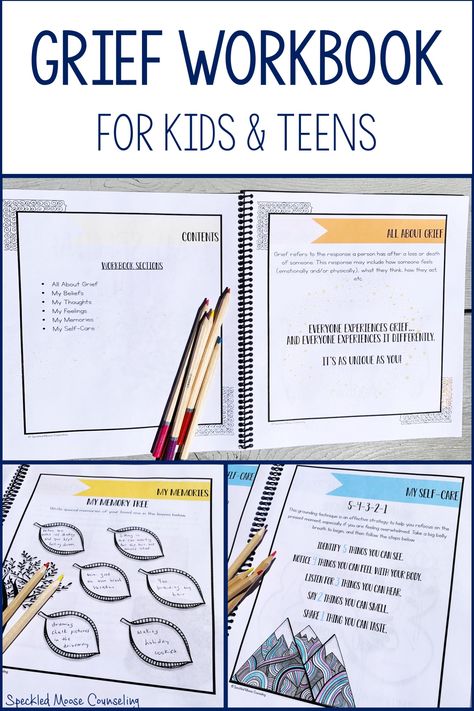
Authors: Lawrence Robinson and Melinda Smith, M.A.
- References
Depressive Disorders. (2013). In Diagnostic and Statistical Manual of Mental Disorders. American Psychiatric Association. https://doi.org/10.1176/appi.books.9780890425787.x04_Depressive_Disorders
Zisook, S., & Shear, K. (2009). Grief and bereavement: What psychiatrists need to know. World Psychiatry, 8(2), 67–74. https://doi.org/10.1002/j.2051-5545.2009.tb00217.x
Stroebe, M., Schut, H., & Stroebe, W. (2007). Health outcomes of bereavement. The Lancet, 370(9603), 1960–1973. https://doi.org/10.1016/S0140-6736(07)61816-9
Simon, N. M., Wall, M. M., Keshaviah, A., Dryman, M. T., LeBlanc, N. J., & Shear, M.
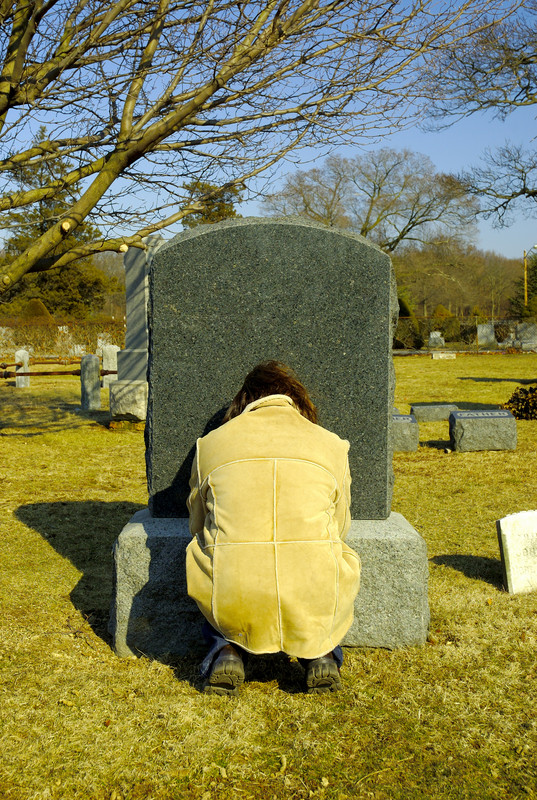 K. (2011). Informing the symptom profile of complicated grief. Depression and Anxiety, 28(2), 118–126. https://doi.org/10.1002/da.20775
K. (2011). Informing the symptom profile of complicated grief. Depression and Anxiety, 28(2), 118–126. https://doi.org/10.1002/da.20775Simon, N. M. (2013). Treating Complicated Grief. JAMA, 310(4), 416–423. https://doi.org/10.1001/jama.2013.8614
Corr, C. A. (1999). Enhancing the Concept of Disenfranchised Grief. OMEGA – Journal of Death and Dying, 38(1), 1–20. https://doi.org/10.2190/LD26-42A6-1EAV-3MDN
Johansson, A. K., & Grimby, A. (2012). Anticipatory grief among close relatives of patients in hospice and palliative wards. The American Journal of Hospice & Palliative Care, 29(2), 134–138. https://doi.org/10.1177/1049909111409021
Grief and Loss – A guide to preparing for and mourning the death of a loved one. (Harvard Medical School Special Health Report)
Death and Grief – Article for teens on how to cope with grief and loss. (TeensHealth)
Grief: Coping with Reminders after a Loss – Tips for coping with the grief that can resurface even years after you’ve lost a loved one.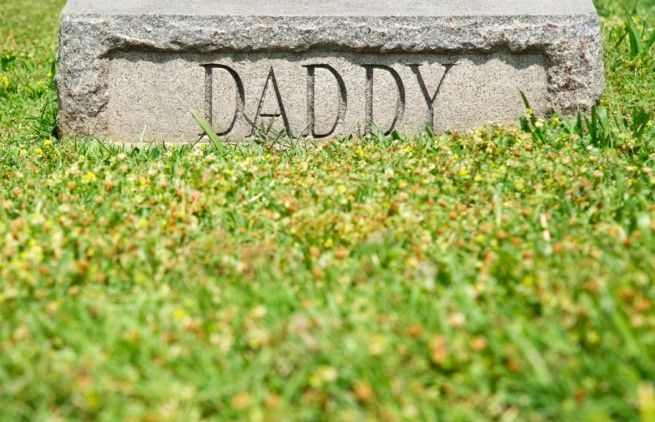 (Mayo Clinic)
(Mayo Clinic)
Life after Loss: Dealing with Grief – Guide to coping with grief and loss. (University of Texas Counseling and Mental Health Center)
Bereavement – Symptoms, causes, and treatment. (Psychology Today)
Bereavement and Grief – Mourning the loss of a loved one. (Mental Health America)
Understanding Grief – Articles to help you cope with the grieving process. (Cruse Bereavement Care)
Bereavement resources
Helplines:
In the U.S.: Crisis Call Center at 775-784-8090
UK: Cruse Bereavement Care at 0808 808 1677
Australia: GriefLine at (03) 9935 7400
Other support:
Find a GriefShare group meeting near you – Worldwide directory of support groups for people grieving the death of a family member or friend. (GriefShare)
Find Support – Directory of programs and support groups in the U.S. for children experiencing grief and loss. (National Alliance for Grieving Children)
Chapter Locator for finding help for grieving the loss of a child in the U. S. and International Support for finding help in other countries. (The Compassionate Friends)
S. and International Support for finding help in other countries. (The Compassionate Friends)
If you're feeling suicidal…
Seek help immediately. Please read Suicide Help, talk to someone you trust, or call a suicide helpline:
- In the U.S., call 1-800-273-8255.
- In the UK, call 08457 90 90 90.
- In Australia, call 13 11 14.
- Or visit IASP to find a helpline in your country.
Last updated: December 5, 2022
How to deal with grief? | Clinical Center "Psychiatry-Narcology"
"There is nothing more malleable than water, but hard water will not overcome it"
"Tao Te Ching"...
How to cope with grief?
Every grief has a beginning, a goal and an end.
When a heavy loss comes to a calm, happy life, many things change... The death of a loved one throws us off balance. All our plans, hopes, ideas about life are crumbling. At the first moment, we are in a state of shock, we are paralyzed by fear, unwillingness to accept what is happening.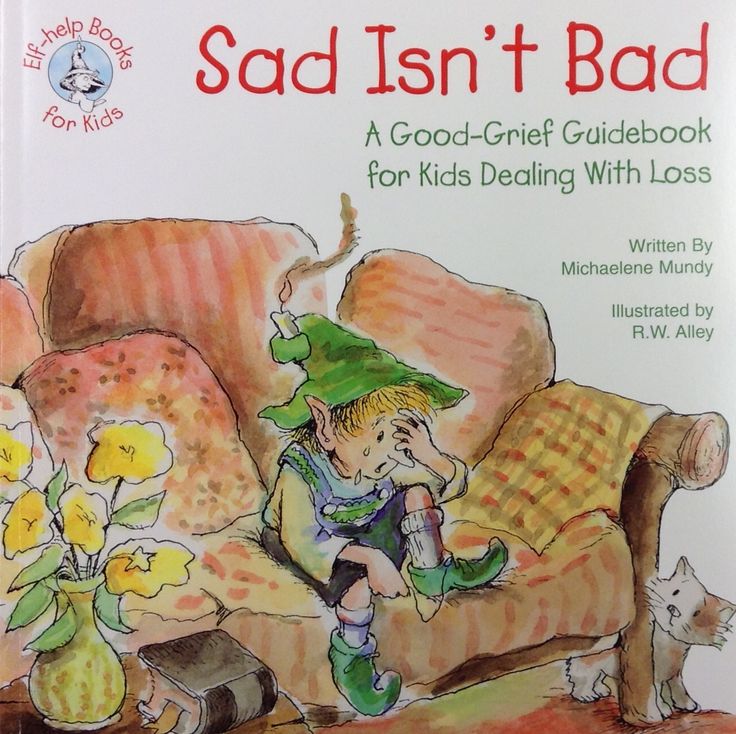 It is difficult to force yourself to move, think, feel, speak. And in this situation, the most important thing to do is to survive the grief that has overtaken, to restore your balance. Our life is so arranged that we are born and die. At one time or another, probably, everyone will have to face death and the resulting losses. nine0006
It is difficult to force yourself to move, think, feel, speak. And in this situation, the most important thing to do is to survive the grief that has overtaken, to restore your balance. Our life is so arranged that we are born and die. At one time or another, probably, everyone will have to face death and the resulting losses. nine0006
This article will talk about how grief manifests itself and how the process of rehabilitation goes after the death of a loved one. Why am I writing about this? Because, in my opinion, understanding the process of grief allows us to consider it as a natural process that all people face, and also allows us to be more mature and ready to share the bitterness of the tragedy of people who have lost their loved ones and, accordingly, choose the way to communicate with them, which will facilitate rather than stop the process of mourning. Often people who are faced with the death of a loved one have a number of questions: “Is it normal for me to talk to the dead? How to survive grief and continue to live? How long will it hurt me? “Will I be able to be happy in life and will this not be a betrayal of the deceased, etc.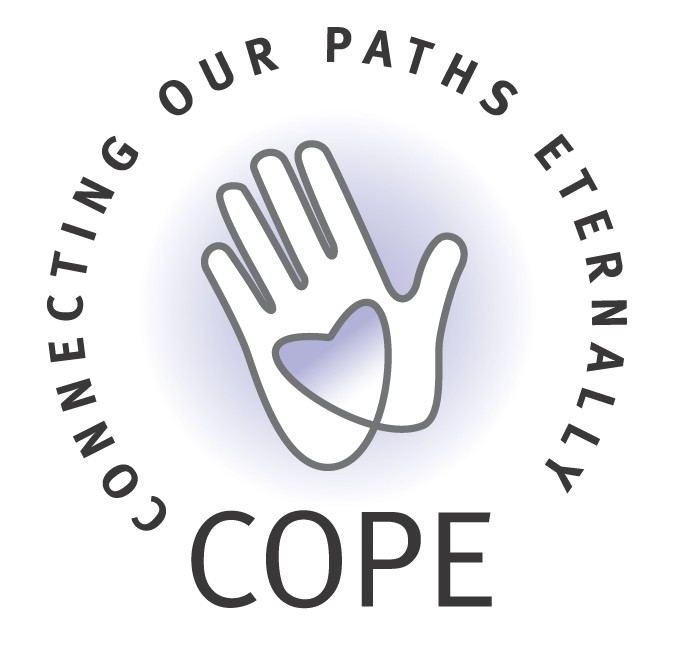 ?” . All these questions are being answered not only by those who are faced with the loss of a loved one, but also by those people who have thought about questions about life and death.
?” . All these questions are being answered not only by those who are faced with the loss of a loved one, but also by those people who have thought about questions about life and death.
So, what is grief and how does it manifest itself?
In the explanatory dictionary of S.I. Ozhegov, grief is defined as a state of deep sadness and grief. This is a natural process of healing a trauma as a result of a person's death, affecting the changes that occur in all layers of a person's consciousness: in thoughts, feelings, behavior, will. nine0006
We observe manifestations of grief in various physiological and psychological reactions of the body, in religious traditions accepted in society.
For example, many, having lost loved ones, note such physiological changes as dizziness, memory impairment, loss of appetite, insomnia and other physiological symptoms.
Psychological reactions to an event that has taken place and to a person who has passed away are very diverse and contradictory.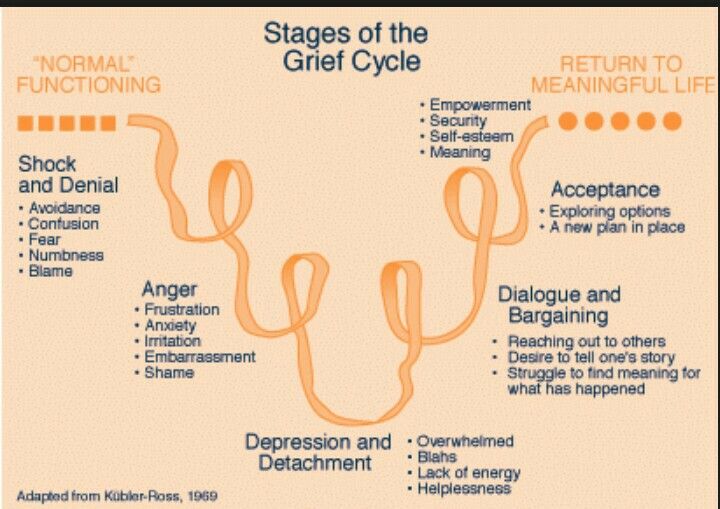 Penetrating pain and longing paralyze the entire body, anger at a dead person causes a desire to destroy and scatter everything in its path. Feelings of guilt, like a aching, sore tooth, do not give peace to thoughts. nine0006
Penetrating pain and longing paralyze the entire body, anger at a dead person causes a desire to destroy and scatter everything in its path. Feelings of guilt, like a aching, sore tooth, do not give peace to thoughts. nine0006
As for religion, it should be said that in all world religions, the observance of traditions and rituals associated with the death of a person is aimed at saving the soul of the deceased. The death of a person is seen as a transition to eternal life.
Each person experiences loss in his own way and as best he can. Faith helps someone at this moment, someone does what they love, someone turns for psychological help. There is no single recipe for grief. A "sick heart" usually finds the medicine itself, which alleviates the condition. Therefore, the time to grieve will also vary depending on the severity of the injury and other factors. nine0006
But, nevertheless, the analysis of different concepts of mourning allows us to conclude that there are common stages in the flow of grief and similar feelings associated with loss.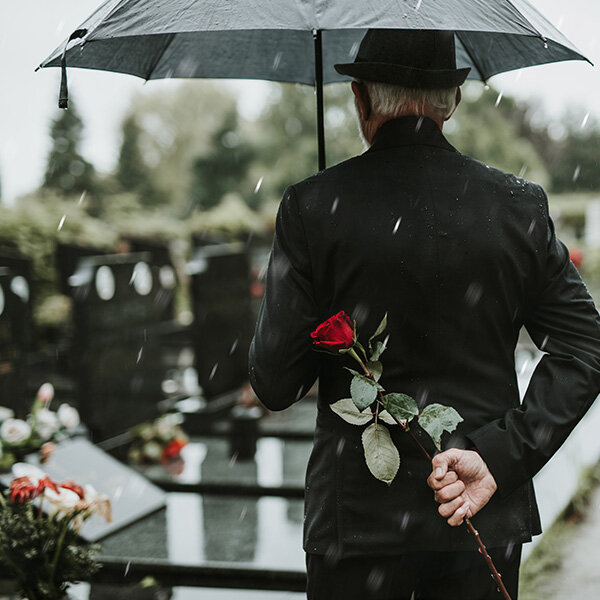 Many authors agree that grief normally lasts for 2 years.
Many authors agree that grief normally lasts for 2 years.
Below are 4 stages (phases) of the flow of grief F. E. Vasilyuk, described in her book “To Survive Grief. Human in man.
The initial stage of grief can be characterized by reactions of shock and numbness. The shock can last from a few seconds to several weeks, with an average of nine days. At this stage, human suffering is weakly expressed or not expressed at all, sensitivity to pain is reduced. The absence of feelings can be mistakenly regarded by others as a lack of love and selfishness. Meanwhile, it is precisely this “insensitivity” that testifies to the severity and depth of experiences. And the longer this gap lasts, the more severe the consequences will be. nine0006
At this stage, the following physiological and behavioral changes are observed: loss of appetite, muscle weakness, inactivity, fussy activity.
A feeling of unreality of what is happening, spiritual numbness, insensitivity, stupor appear in consciousness.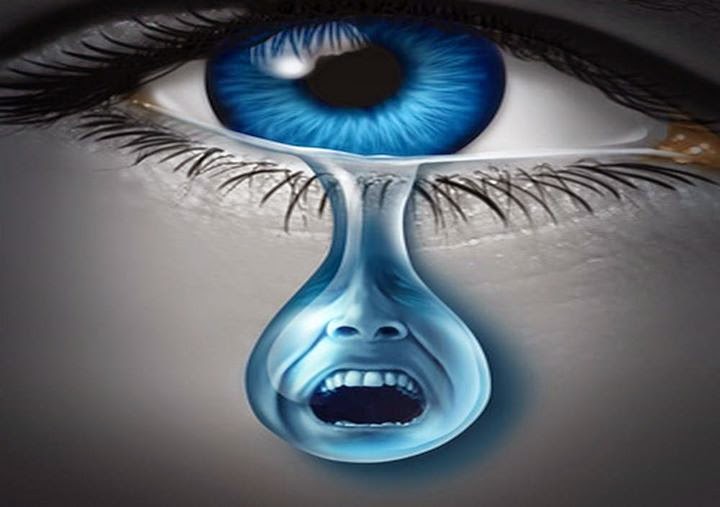 The perception of external reality is dulled, and then, in the future, gaps often arise in the memories of this period.
The perception of external reality is dulled, and then, in the future, gaps often arise in the memories of this period.
Outwardly, in this phase, a person may look as usual. He behaves normally, fulfills his duties - studies, works, helps with the housework. But if you look closely, you can notice some features. Human movements are somewhat mechanical. The face is amimic, motionless. Speech is inexpressive. Movements are slow. There are no strong feelings. nine0006
Despite all the outward deceptive well-being, objectively the person is in a rather serious condition. And one of the dangers is that at any moment it can be replaced by the so-called acute reactive state, when a person suddenly starts screaming, banging his head against the wall, wanting to do something with himself, and so on. Surroundings, whose vigilance is lulled, may not always be ready for this.
Simultaneously with the shock or after it, there may be denial of what happened, when a person cannot believe that such a misfortune could happen in his life.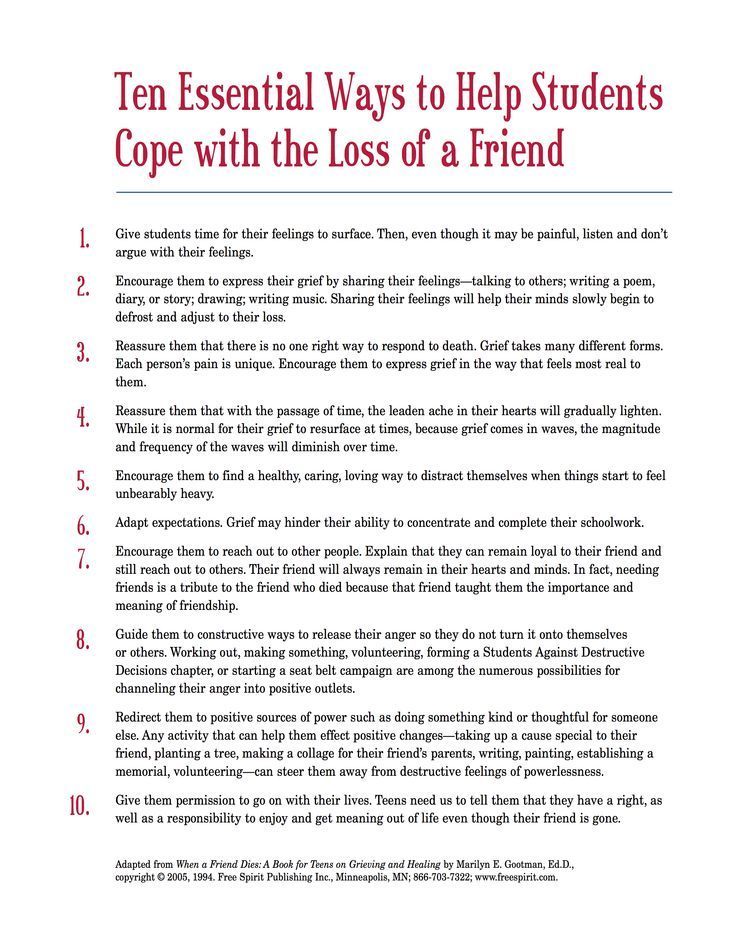 A person reacts especially sharply with disbelief in the event of an unexpected loss: as a result of catastrophes, natural disasters, murders. nine0006
A person reacts especially sharply with disbelief in the event of an unexpected loss: as a result of catastrophes, natural disasters, murders. nine0006
If the loss is too overwhelming, the state of shock and denial of what happened sometimes take on paradoxical forms, making others doubt the person's mental health. However, this is not necessarily an insanity. Most likely, the human psyche is simply unable to withstand the blow and seeks to isolate itself from the terrible reality for some time, creating an illusory world.
How can we help the grieving person at this stage? nine0006
- It is important not to lose sight of a person who is faced with tragic news. You don't have to talk to him, you can just watch him.
- Do not console a person, with words everything is fine, everything will pass. Any consolation at this stage is useless. It can cause surprise, indifference, anger towards you.
- Touching a person promotes the release of words and actions.
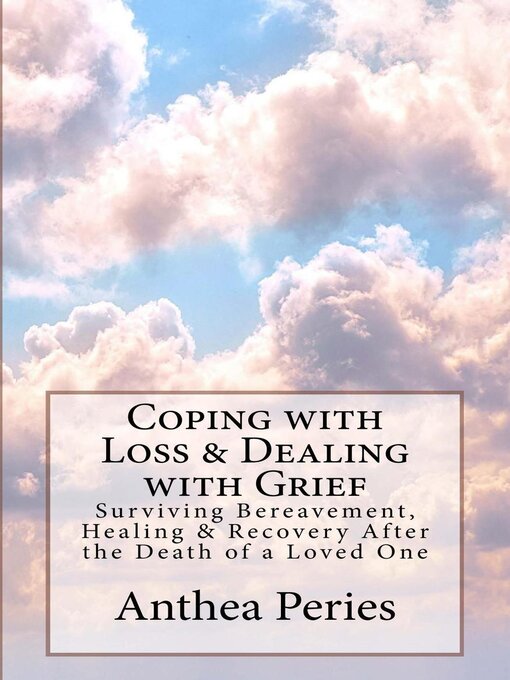 Tactile contact allows you to get a person out of the hardest shock. At this moment, most people begin to feel small, defenseless, they want to cry, as they cried in childhood. nine0059
Tactile contact allows you to get a person out of the hardest shock. At this moment, most people begin to feel small, defenseless, they want to cry, as they cried in childhood. nine0059 - Build a conversation in such a way that it contributes to the expression of any strong feelings, actions (shout, sob, plea for help) that will bring a person out of shock. In folk traditions, there were cultural rituals that facilitated and helped a person survive grief. Mourners were invited to the funeral, who expressed in their own words what the grieving person feels, but does not have the opportunity to express.
The second stage is called acute grief or suffering. It lasts an average of 40 days. At this time, it can be difficult for a person to keep his attention in the outside world, reality is, as it were, covered with a transparent veil, through which the sensations of the presence of the deceased break through quite often. It seems that now he will come home, and everything will be as before . .. Suddenly, on the street - this is he entering the store ... Such visions, woven into the context of external impressions, usually frighten, being taken for signs of impending madness. nine0006
.. Suddenly, on the street - this is he entering the store ... Such visions, woven into the context of external impressions, usually frighten, being taken for signs of impending madness. nine0006
Various bodily reactions persist and may even intensify at first - difficult shortened breathing, muscle weakness, asthenia, loss of energy, feeling of emptiness in the stomach, tightness in the chest, lump in the throat, increased sensitivity to odors, decrease or extreme increase in appetite, sexual dysfunction, sleep disturbances. All this indicates health problems.
This is the period of greatest suffering, acute mental pain. There are many difficult, sometimes strange and frightening thoughts and feelings. These are feelings of emptiness and meaninglessness, despair, a sense of abandonment, loneliness, anger, guilt, fear, anxiety, helplessness. Feelings are easily evoked and at any moment a person is ready to cry. nine0006
It would not be a big exaggeration to say that almost everyone who has lost a significant person for him in one form or another, deep down feels guilty towards the deceased. Bereaved people blame themselves for not preventing the death of a loved one; for having voluntarily or involuntarily contributed to his death; for treating him badly: not caring enough, helping him, not talking about his love, not asking for forgiveness. In the end, even for the fact that they stayed to live, he (she) is gone. nine0006
Bereaved people blame themselves for not preventing the death of a loved one; for having voluntarily or involuntarily contributed to his death; for treating him badly: not caring enough, helping him, not talking about his love, not asking for forgiveness. In the end, even for the fact that they stayed to live, he (she) is gone. nine0006
Also, people experiencing loss often torture themselves with numerous "if" or "what if" sometimes becoming obsessive: "If I knew ..." "If I called (a) an ambulance ...", etc. .
Such phenomena are quite a natural reaction to loss. The work of grief also finds expression in them. We can say that here acceptance is struggling with denial.
Outwardly, a person experiencing grief changes greatly. A mask of suffering freezes on the face. The gait is inert, the shoulders are lowered ("grief bent down to the ground"). nine0006
Unusual preoccupation with the image of the deceased and idealization, emphasizing extraordinary virtues, avoiding memories of his bad features and actions are typical.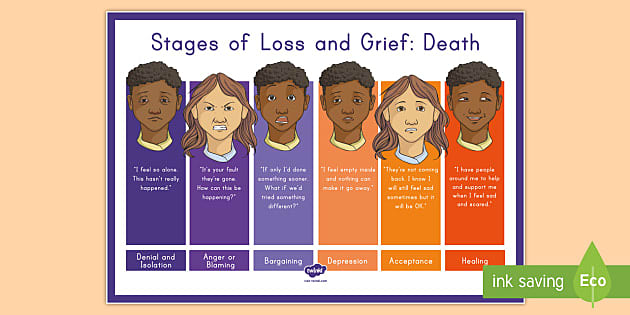
Grief also affects relationships with others. There may be a loss of warmth, irritability, there is a desire to be alone.
Daily activities change. It can be difficult for a person to concentrate on what he is doing, it is difficult to bring the matter to the end, and a complexly organized activity can become completely inaccessible for some time. Sometimes there is an unconscious identification with the deceased, manifested in involuntary imitation of his gait, gestures, facial expressions. nine0006
What can be done to relieve suffering at this stage?
- Be attentive to the needs of the grieving person. If a person wants to be alone, this opportunity should be provided. If he wants to talk to you, be at his disposal by listening to him.
- If a person is crying, it is not necessary to stop the tears at all, thus, to calm him down. We all have an unconditioned reflex to other people's tears. Seeing them, we are ready to do everything, if only the person would calm down, stop crying.
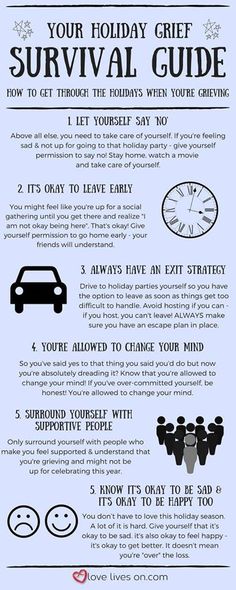 Tears provide an opportunity for the strongest emotional discharge. Our lacrimal glands are designed in such a way that tears contribute to the production of sedatives. Not without reason, having cried, sleeps so well. Calming a person, we do not allow this process to be completed. nine0059
Tears provide an opportunity for the strongest emotional discharge. Our lacrimal glands are designed in such a way that tears contribute to the production of sedatives. Not without reason, having cried, sleeps so well. Calming a person, we do not allow this process to be completed. nine0059 - At the end of this phase, you need to start slowly introducing a person to socially useful activities: send him to work, school (if it is a child), entrust him with homework. This is very useful, as it gives you the opportunity to distract from your main problem.
- It is believed that with a grieving person one must be extremely careful, reverent. But it's not. Try to imagine yourself surrounded by people, each of whom looks at you with a pitiful, sympathetic look. Yes, you will want to escape from them as soon as possible! Because everything will remind you of your loss. nine0059
- If you see that a person in his suffering has completely stopped noticing other people who need him, you can tell him something like this: "You need to take care of your elderly father, he needs your help!" It is important to show that although you understand his condition, the problem, you still treat him like an ordinary person, without giving him any discounts and indulgences.
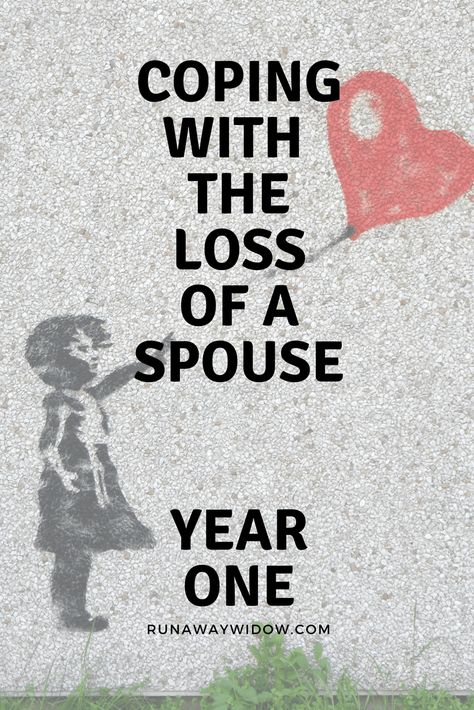 This will be greatly appreciated and will help in recovery from the loss.
This will be greatly appreciated and will help in recovery from the loss.
In general, the phase of acute grief can be considered critical in relation to its further experience, and sometimes it acquires special significance for the entire life path. How it will be overcome will determine the strategy for later life. If a person realizes and accepts the loss, this will be a very important emotional experience. If a person does not cope with grief, he may get stuck in this phase, or he may like the sympathy and pity that he causes, and a victim will form from him. nine0006
Third stage - residual shocks and reorganization. This phase begins 40 days after the event and lasts about a year.
At this stage, life gets back to normal, sleep, appetite, and daily activities are restored. A dead person ceases to be the only focus in life. However, residual grief attacks can be just as severe as in the previous phase. The reason for them most often are some events: the arrival of distant relatives, friends of the deceased person; the implementation of the long-awaited purchase that the deceased dreamed of; holidays - "New Year", "Birthday", "School Graduation", etc.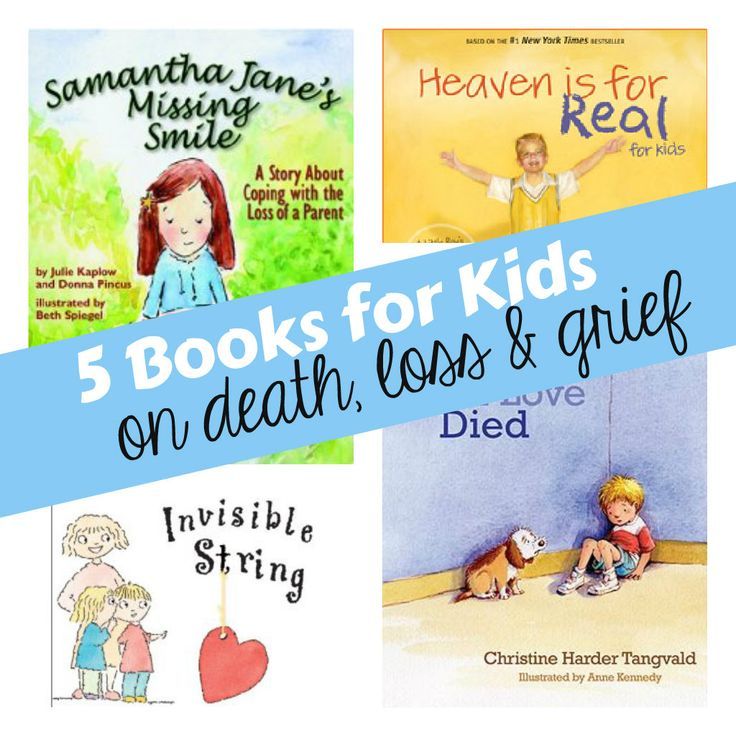 nine0006
nine0006
Almost all ordinary life events take place during this time. The death anniversary is the last date in this series. Perhaps not coincidentally, therefore, most cultures and religions set aside one year for mourning.
Loss gradually enters life. A person has to solve many new problems, and these practical problems are intertwined with the experience itself. There are more and more memories freed from pain, guilt, resentment. Some of these memories become especially valuable, dear, they are sometimes woven into whole stories that are shared with relatives and friends. At this phase, a person, as it were, gets the opportunity to escape from the past and turns to the future - he begins to plan his future life. Therefore, the main help at this stage is to contribute to this appeal to the future by planning your life. nine0006
The fourth stage is the final one. It represents the process of completing work on one's trauma. The duration is from 1 to 2 years.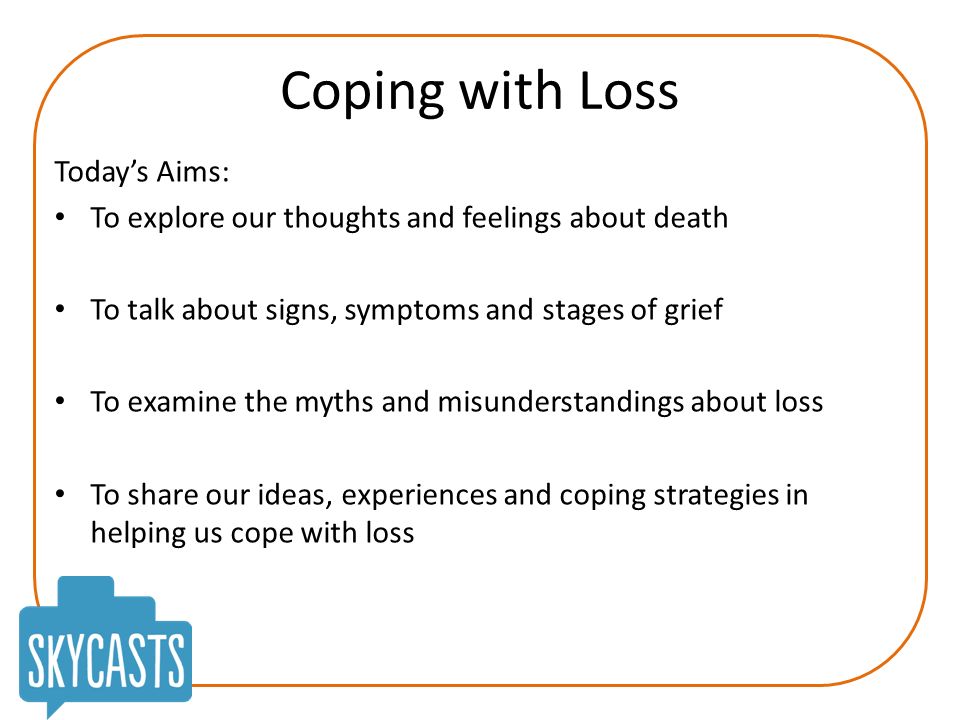 The task at this stage is the complete acceptance of the fact of death and the completion of the process of mourning, as well as the assimilation of the experience of loss, which makes us more mature, wiser and introduces us to eternity.
The task at this stage is the complete acceptance of the fact of death and the completion of the process of mourning, as well as the assimilation of the experience of loss, which makes us more mature, wiser and introduces us to eternity.
The meaning of the work in this phase is that the image of the deceased should take its permanent place in our lives. A sign of this phase is that a person, remembering the deceased, no longer experiences grief, but sadness - a completely different feeling. And this sadness will remain forever in the heart of a person who has lost a loved one. nine0006
At this stage, a person sometimes has to overcome some cultural barriers that make it difficult to complete the "work of grief". For example, the idea that the duration of grief is a measure of our love for the deceased. Also, the natural process of grief can be hindered by many factors hiding in the reasons that caused the death of a person, in the relationship that was with the departed person, in the characterological and personal characteristics of the person experiencing grief.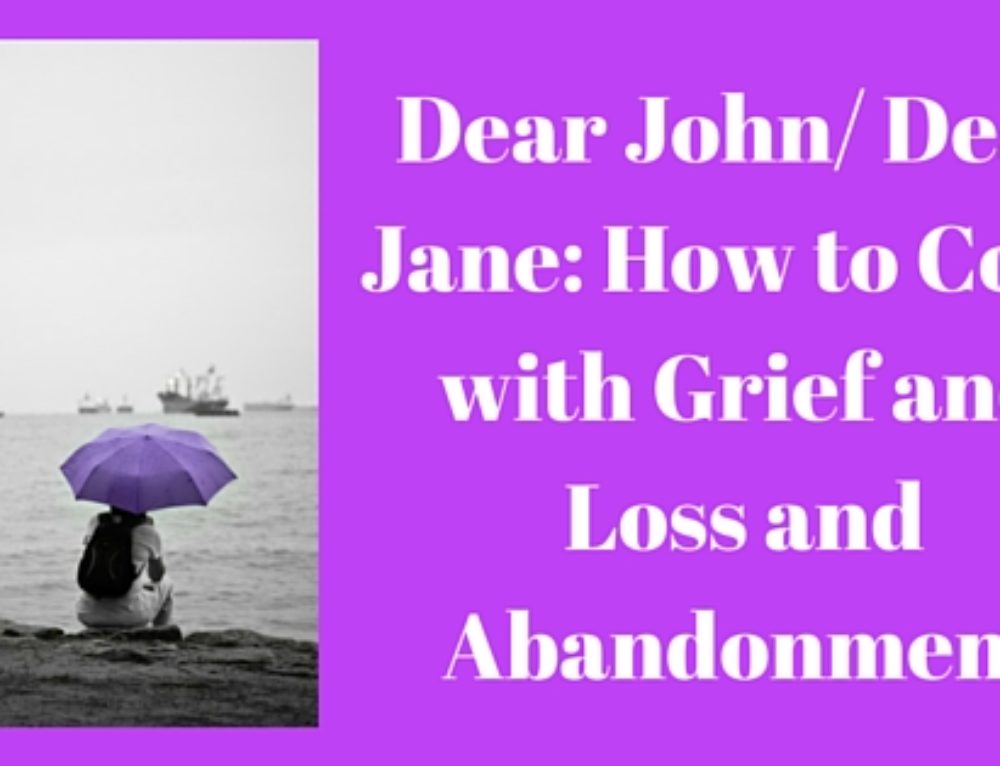
The impossibility of naturally going through the stages of grief leads to distorted, pathological grief. And, therefore, especially important observation of oneself and one's relatives is the opportunity to see, recognize the features of the flow of grief. Because grief, like any traumatic reaction, is a painful, but still bearable, life process. And pathological grief can last for a long time, masquerading as various signs that are not always associated, at first glance, with grief. nine0006
In this article, I wanted to show one of the possible options for describing the stages of grief - from shock and confusion to restoration of balance. However, I would not like to leave in the end a skeptical attitude in your hearts about the structuring of the grief process. Because I'm sure the depth and timing of grief is very individual. Likewise, I don't think there is a right way to deal with grief. And my desire to structure the process of grief, rather, is due to the need to show that any grief has a beginning, a goal, and an end.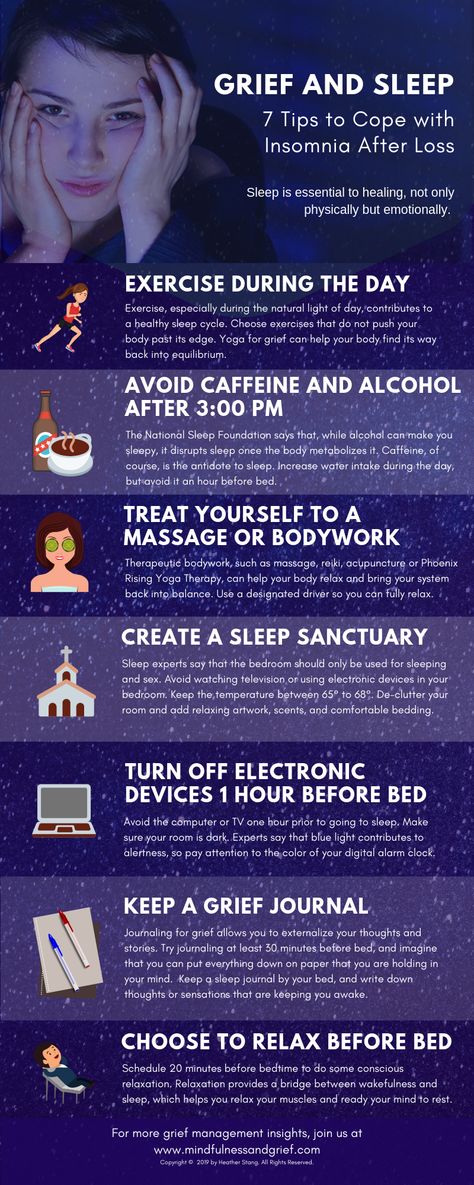 nine0006
nine0006
Concluding the text written above, I would like to quote the words from the book of Metropolitan Anthony of Surozh: “Life. Disease. Death", which, in my opinion, can be a symbolic conclusion of the article:
"We must be ready to admit that love can be expressed through suffering, and that if we claim that we really love someone who has passed away from this life, we must be ready to love a person from the depths of grief and suffering, as we loved him in joy, affirming him with this joy of common life. It takes courage, and I think it needs to be said over and over again today, when many turn to tranquilizers, to alcohol, to all kinds of entertainment to avoid suffering, just to forget. Because what is happening in a person’s soul can be obscured, but not interrupted, and if it is not allowed, a person grinds, he will not grow.” nine0005
Prepared by Elena Kulaga.
How to cope with grief: different ways
The 2020s have just begun, but they have already become difficult for the whole world.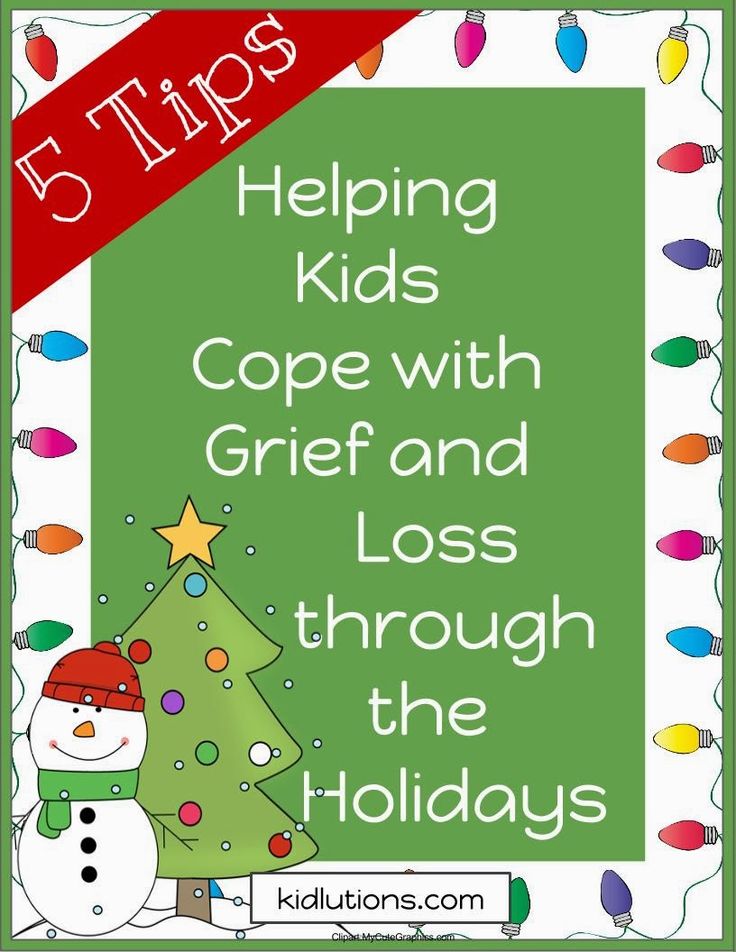 People lost loved ones and were deprived of their usual lives. So that the negative does not destroy the psyche, it is important to live grief correctly. Understanding what helps in this
People lost loved ones and were deprived of their usual lives. So that the negative does not destroy the psyche, it is important to live grief correctly. Understanding what helps in this
How psychology looks at grief
Grieving psychotherapy is a separate direction in psychology, which was developed specifically to help people cope with difficult life events, including those associated with the loss of a family member, friend or pet. Because of the experience, the patient may feel sad, irritated, confused, or even relieved. In addition, feelings of guilt and regret often appear, which can lead to depression. nine0006
Kübler-Ross model
In the 1960s, the Swiss psychiatrist Elisabeth Kübler-Ross, who worked in American hospitals, wrote the book On Death and Dying. In it, she described the standard state of a person after he learns about his fatal diagnosis. In her subsequent writings, she extended the model to the experiences people experience after bereavement.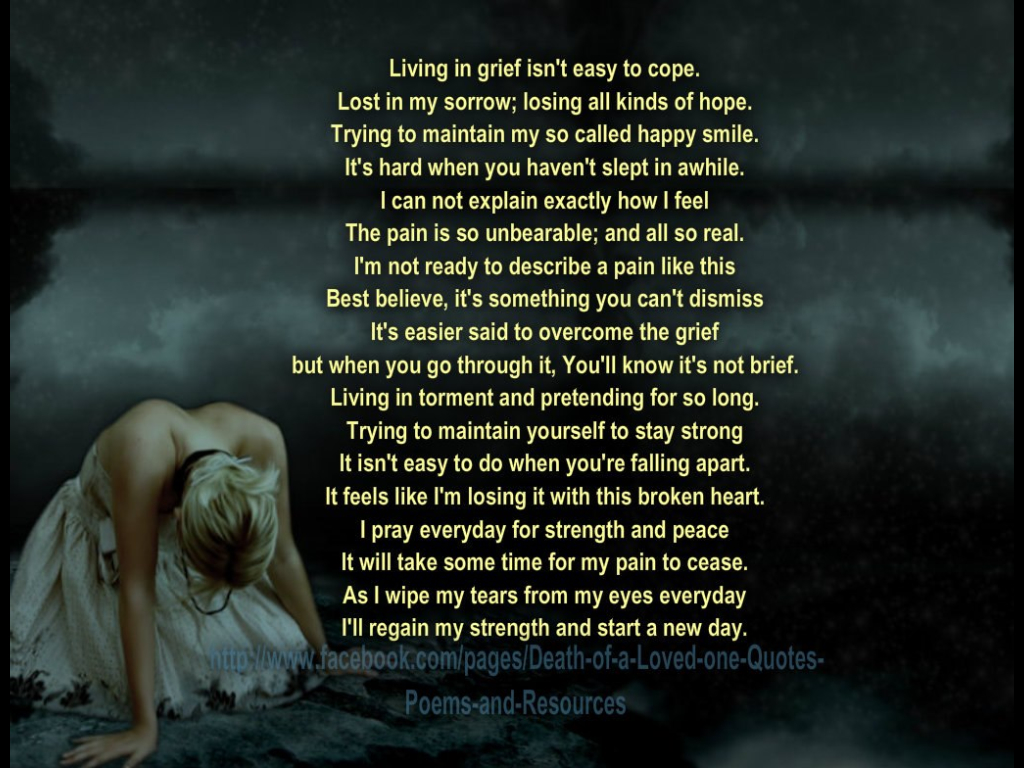 They can be represented as five stages:
They can be represented as five stages:
Negation . After the loss of a loved one, people often try to prove to themselves that this did not happen. This temporarily protects against overwhelming negative emotions. nine0006
Anger . Denial is followed by anger: both at other people, including the deceased, and at oneself.
Trade . The person begins to mentally speculate and ask himself questions like “what if…”
Depression . Quietest stage. The person is filled with sadness and confusion. Emotions press so much that you can’t have enough strength for anything else.
Acceptance of . A person gradually restores his life, realizing that what happened can no longer be corrected. nine0006
In some studies, the Kübler-Ross model has been questioned as not fully confirmed. However, experts agree that it quite fully shows the variability of human grief.
How Psychotherapy Helps
There are a number of psychotherapeutic approaches that help people get through grief. Let's talk about two of them: cognitive behavioral therapy (CBT) and acceptance and responsibility therapy (CBT).
Let's talk about two of them: cognitive behavioral therapy (CBT) and acceptance and responsibility therapy (CBT).
Cognitive behavioral therapy
It focuses on the treatment of common mental illnesses, including depression, anxiety and post-traumatic stress disorder. During a CBT session, a psychologist helps the patient identify negative behavior patterns that are affecting their life. When working with grief, the therapist helps to identify emotions and thoughts that only exacerbate the experience, and direct them in a more constructive direction. To simplify, the method allows you to change behavior through thoughts, and feelings through actions. nine0006
Acceptance and Commitment Therapy
It has been experimentally proven to be effective in dealing with grief-prone people. It can be simplified into six main stages.
Acceptance of negative emotions . A person analyzes and tries to accept his own experiences and thoughts.
Cognitive withdrawal .
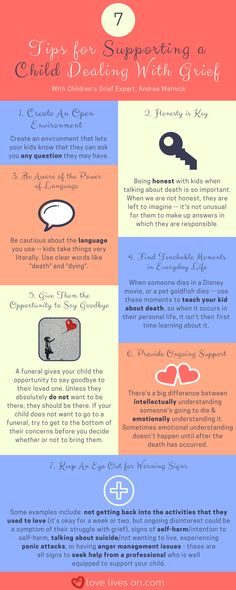
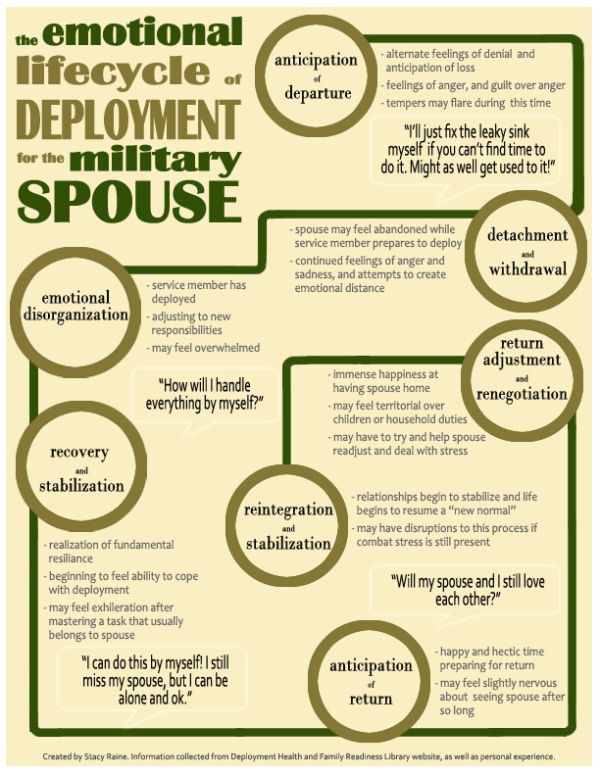 You can move on with your life and keep the memory of someone or something you lost as an important part of you. In fact, as we move through life, these memories can become more and more integral to defining the people we are.
You can move on with your life and keep the memory of someone or something you lost as an important part of you. In fact, as we move through life, these memories can become more and more integral to defining the people we are.
